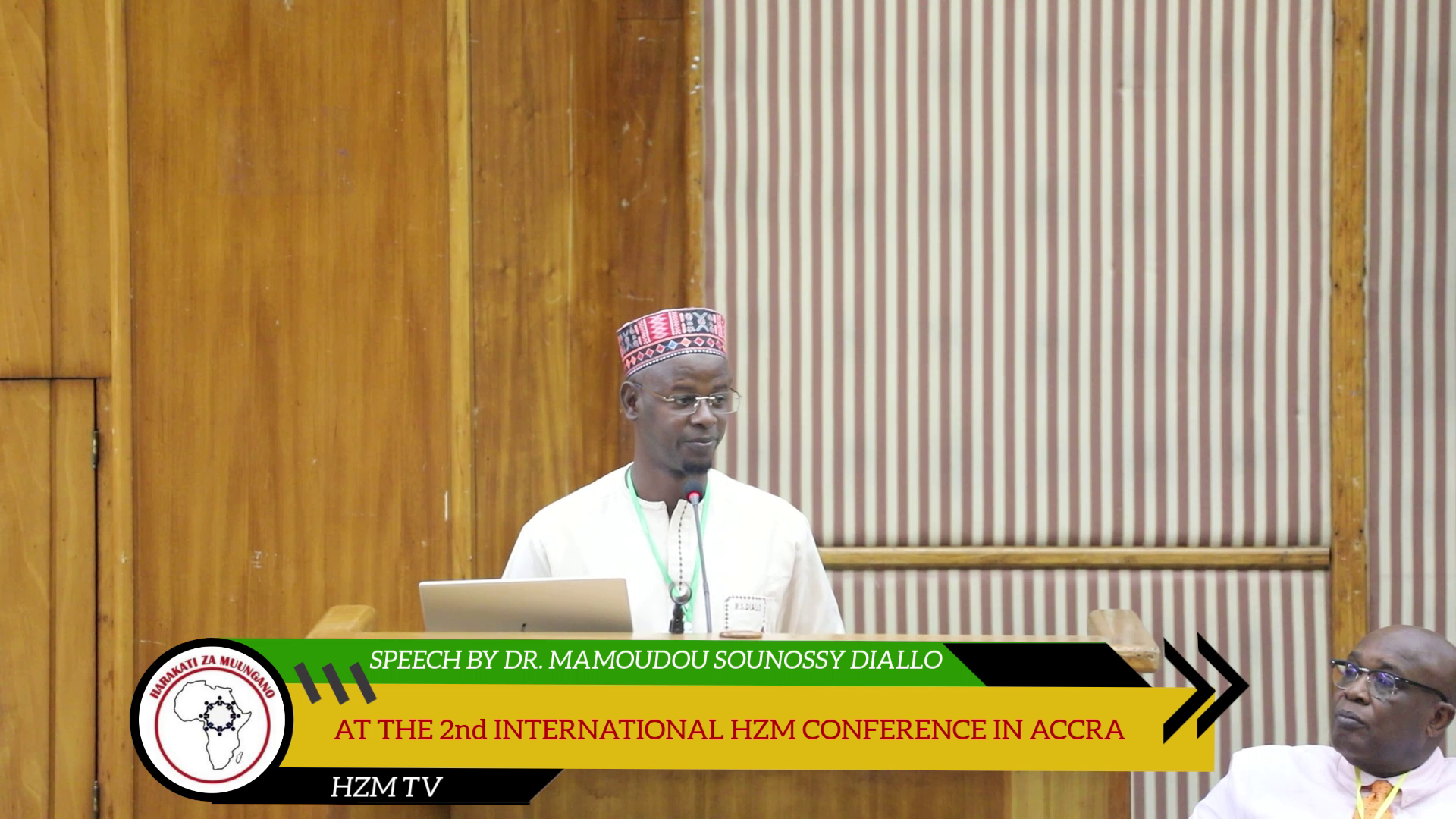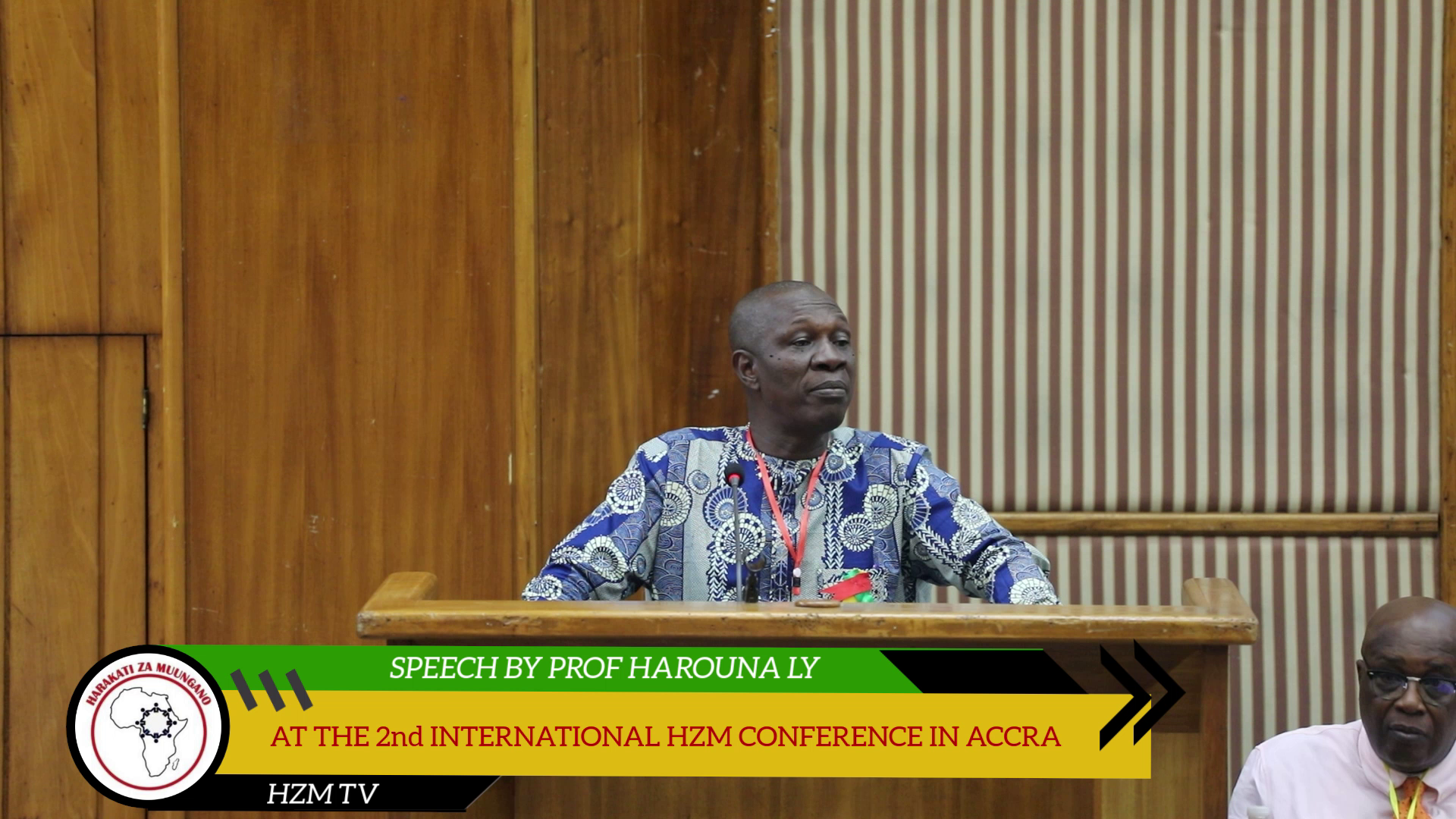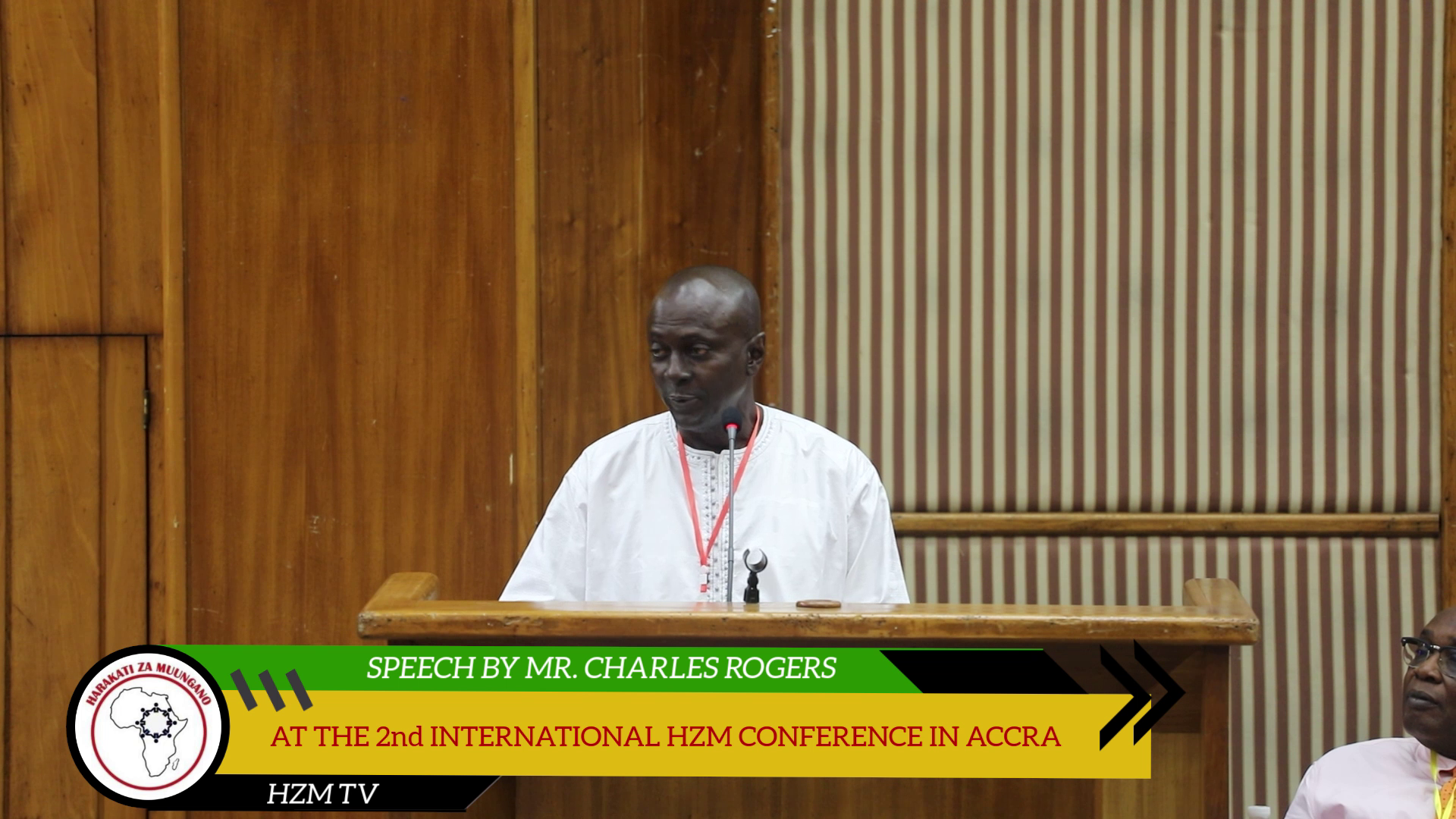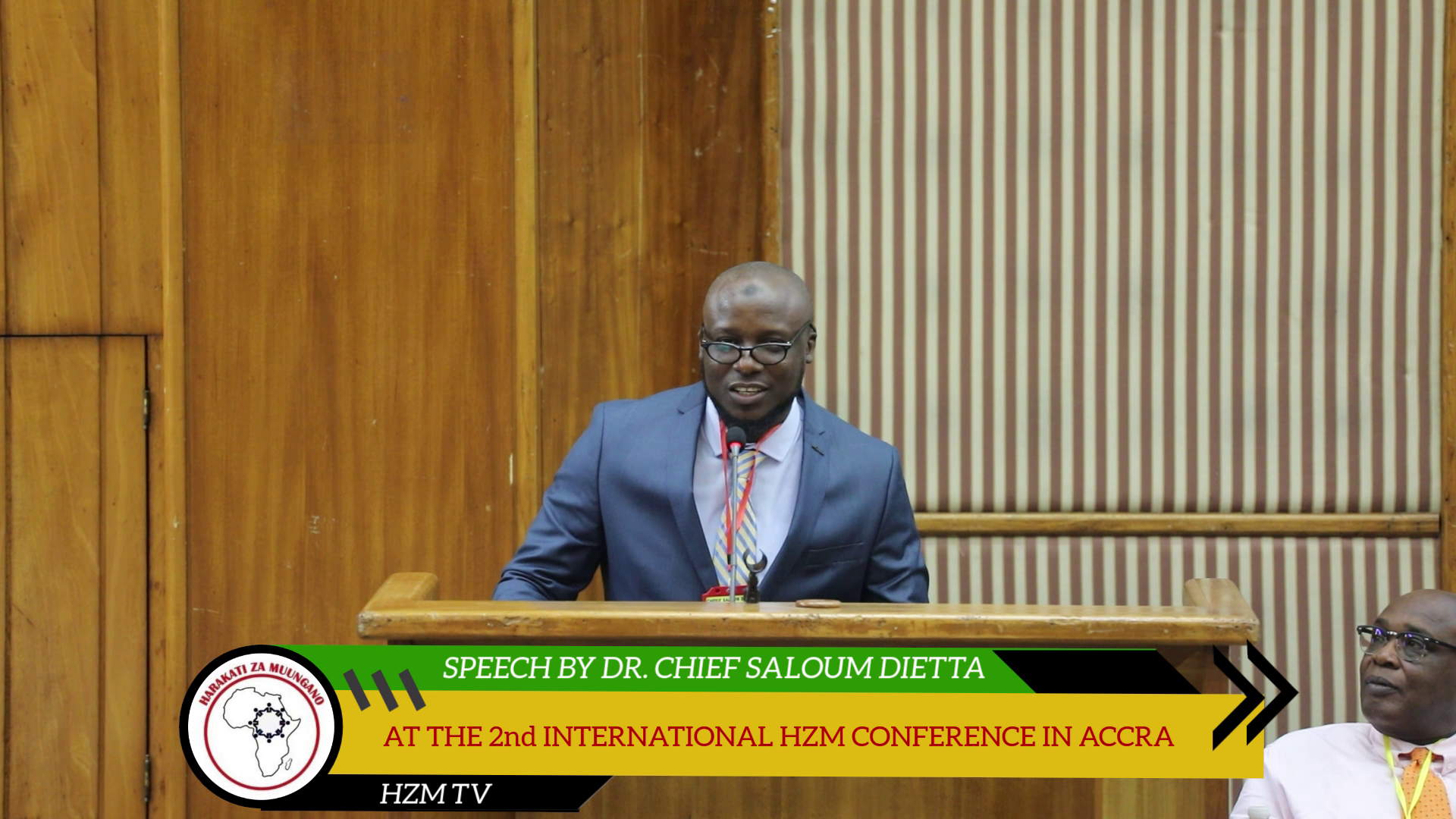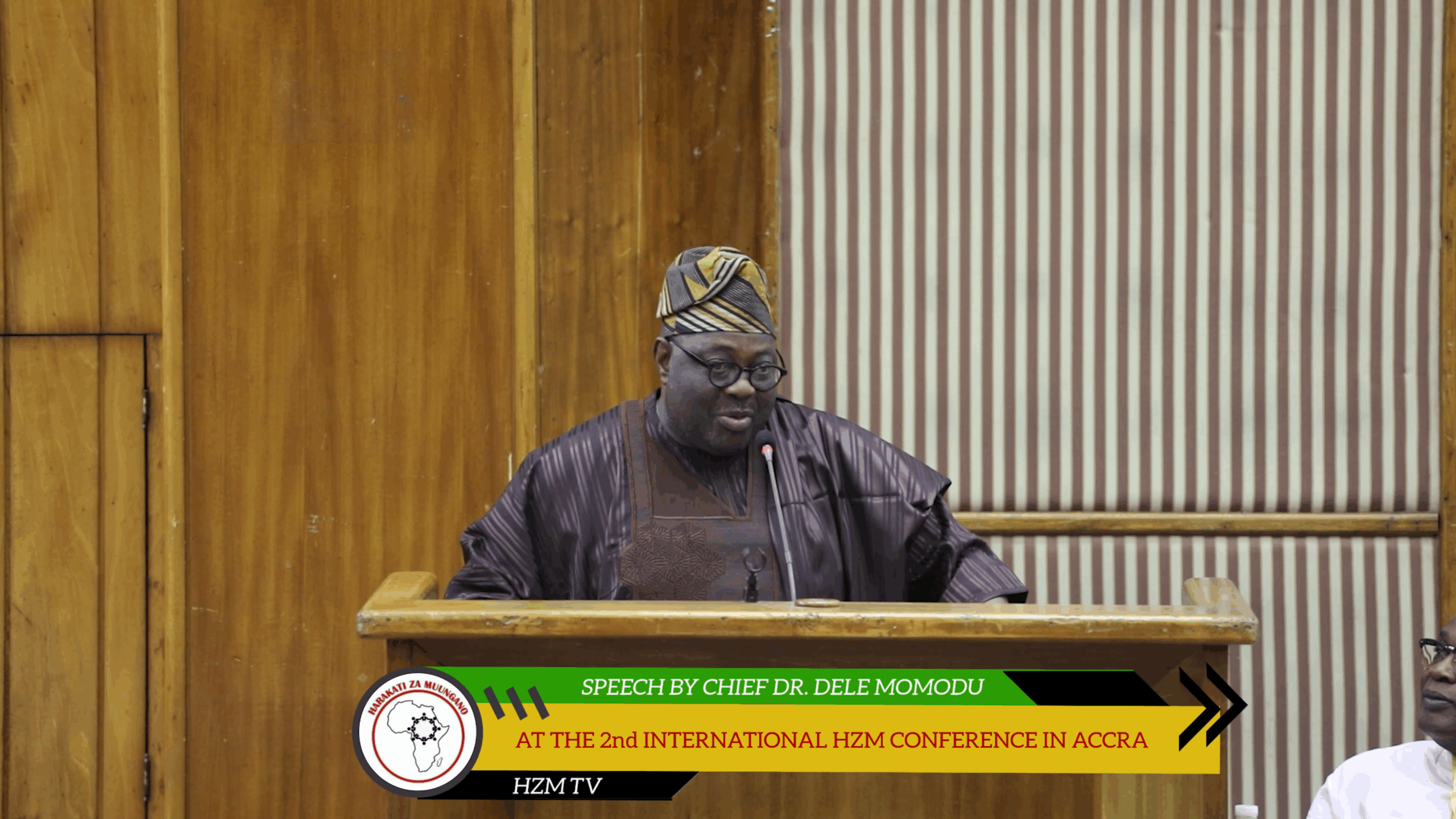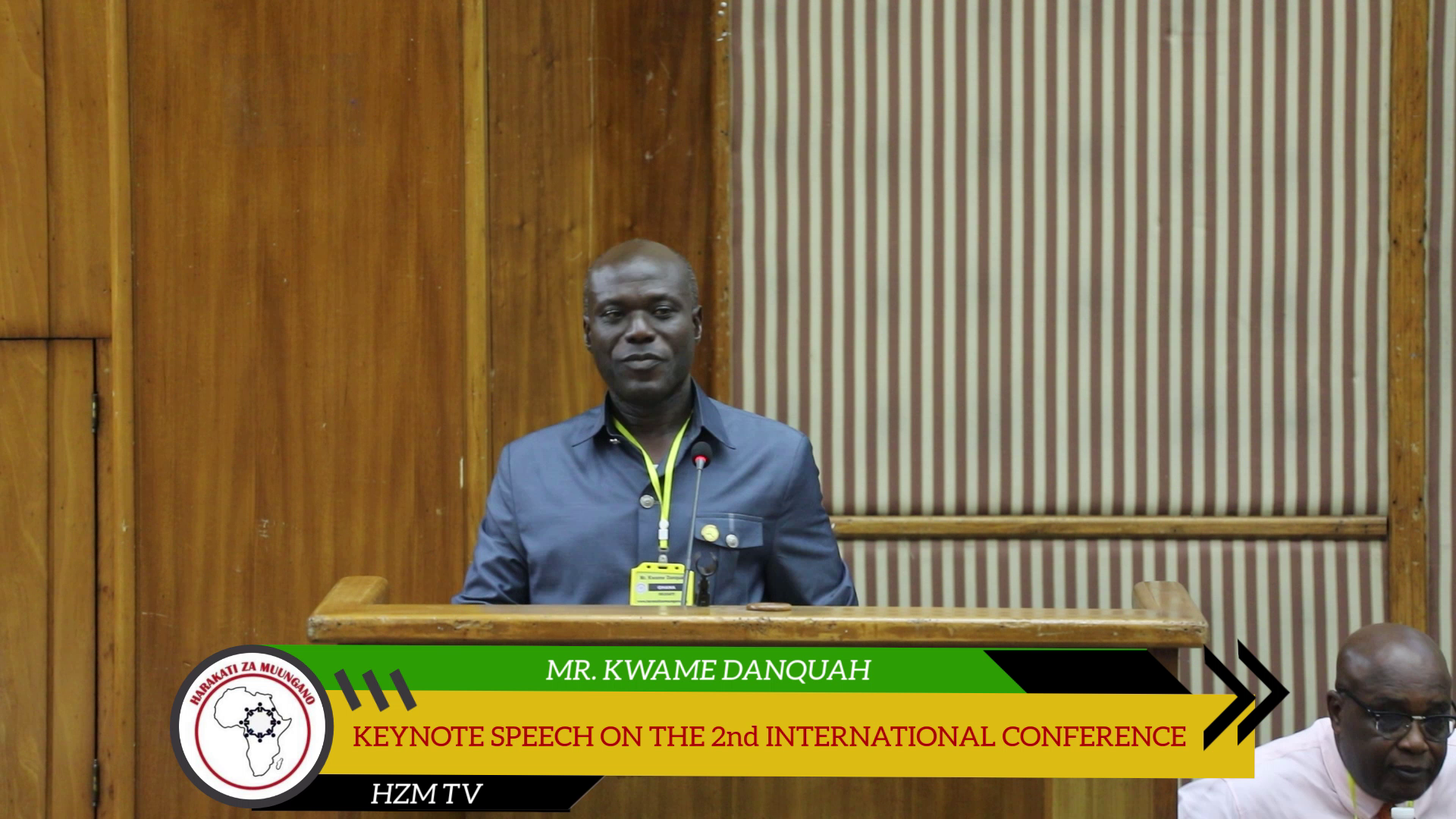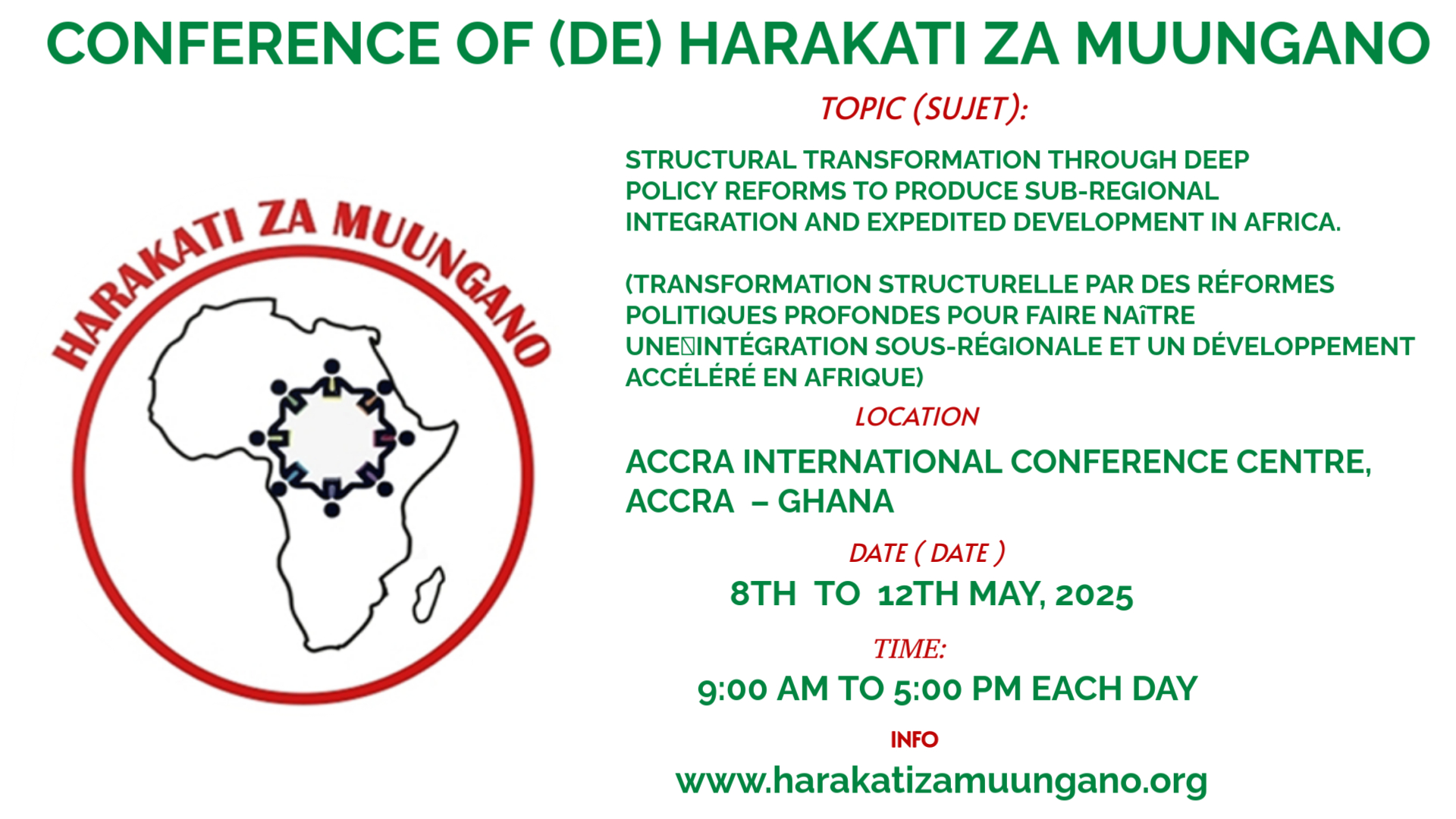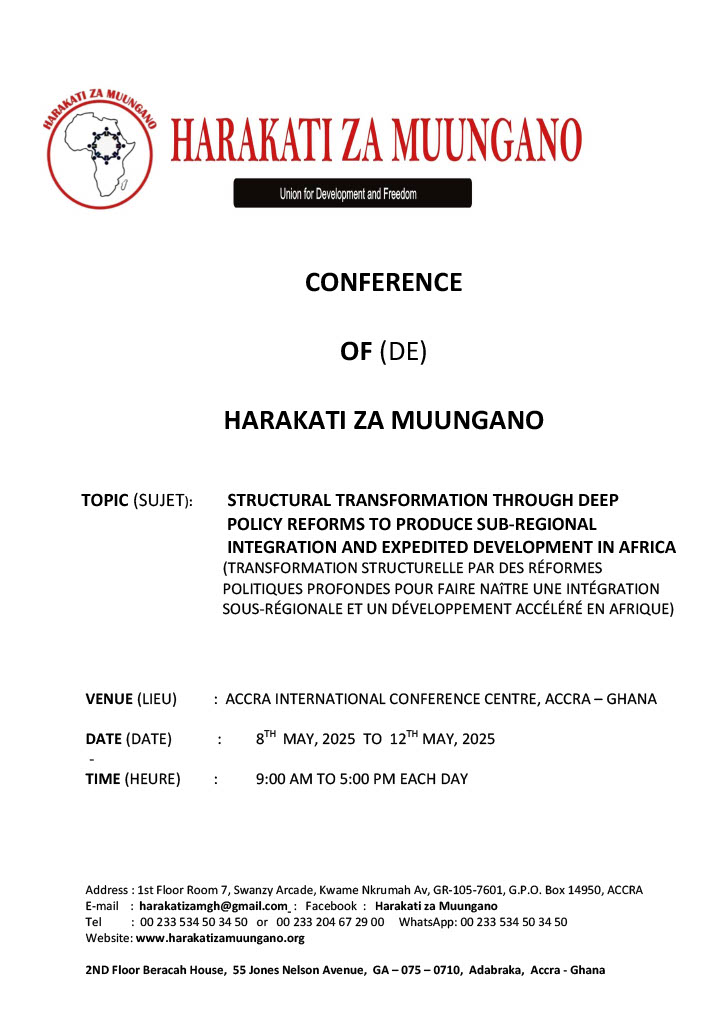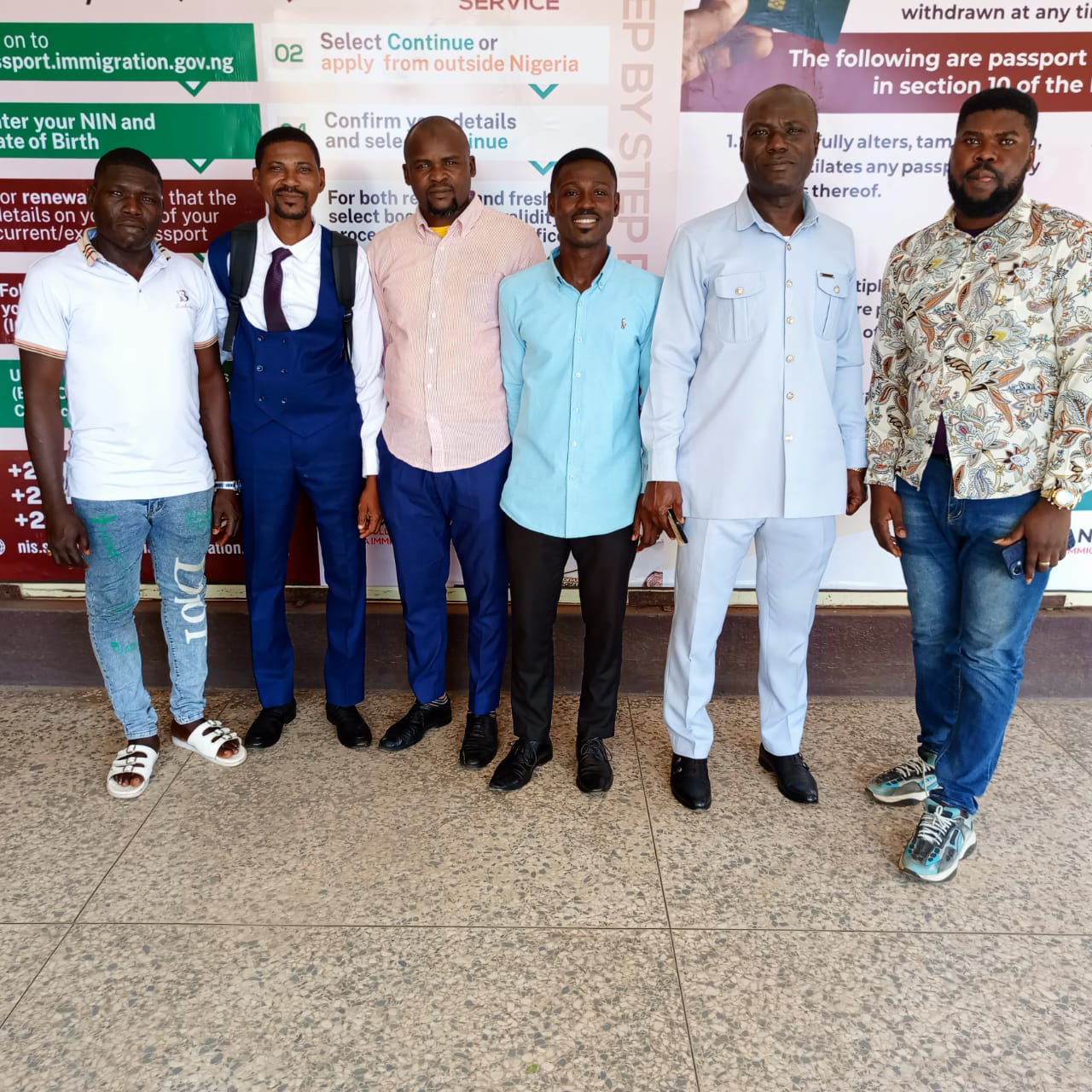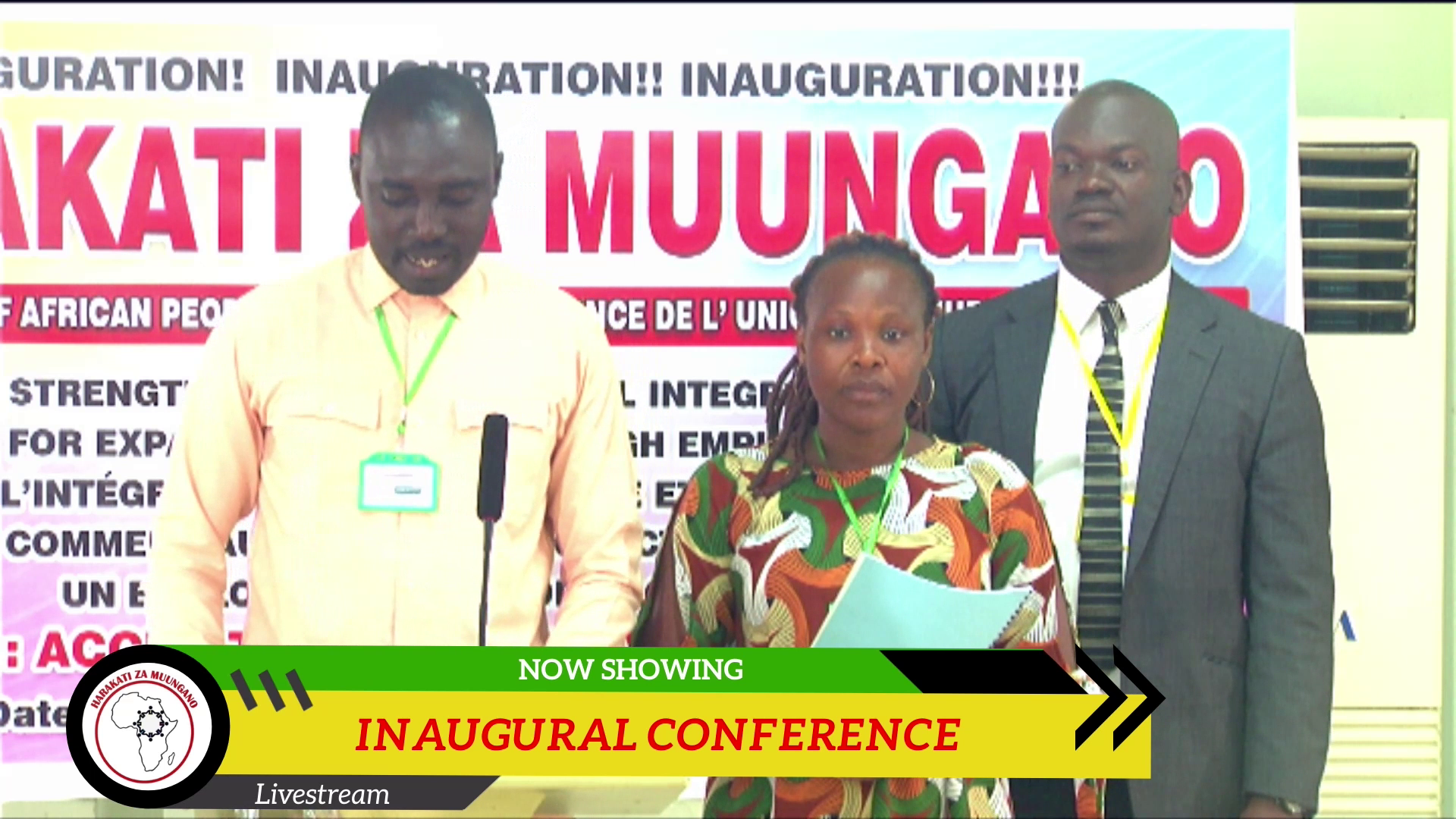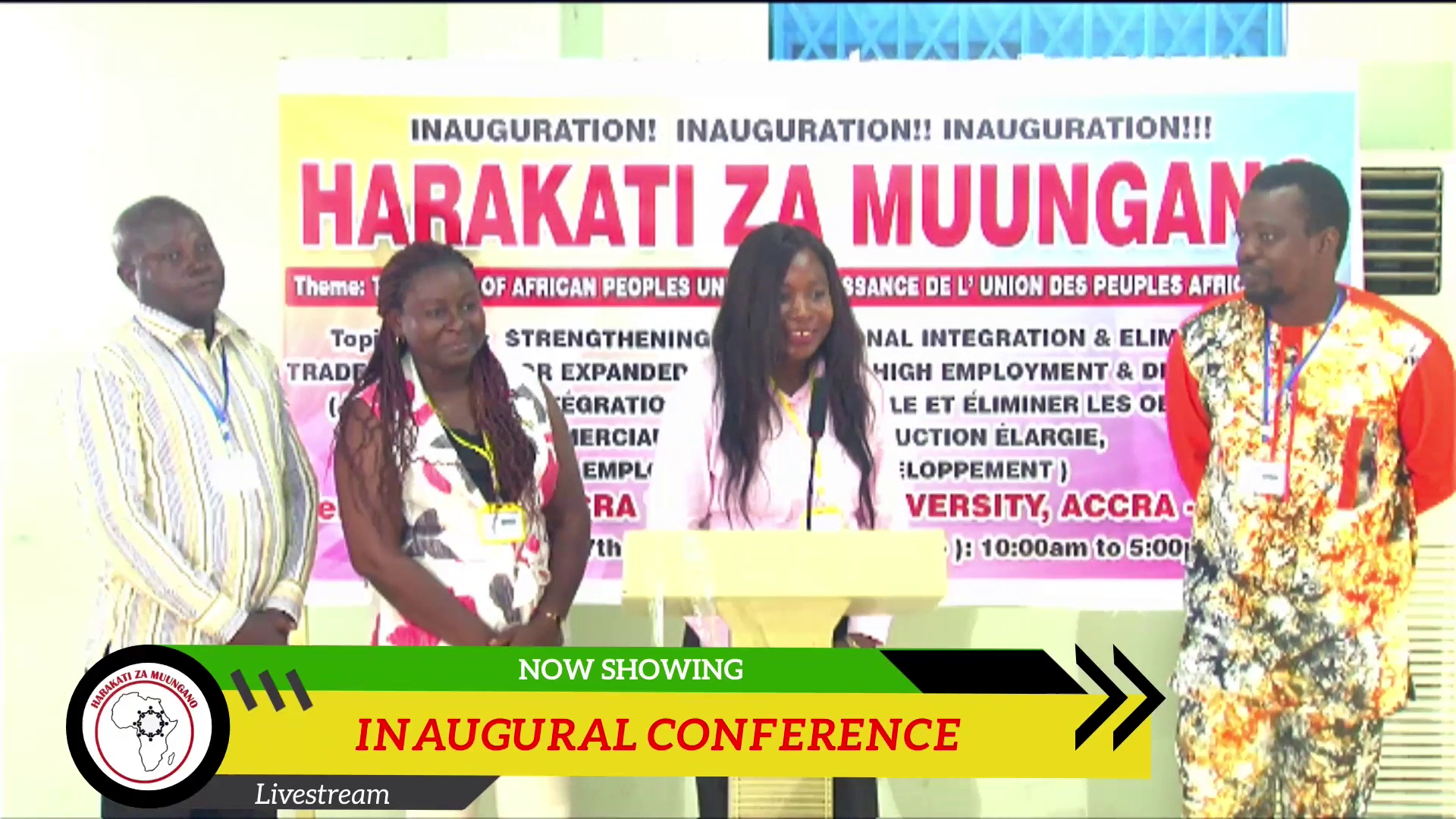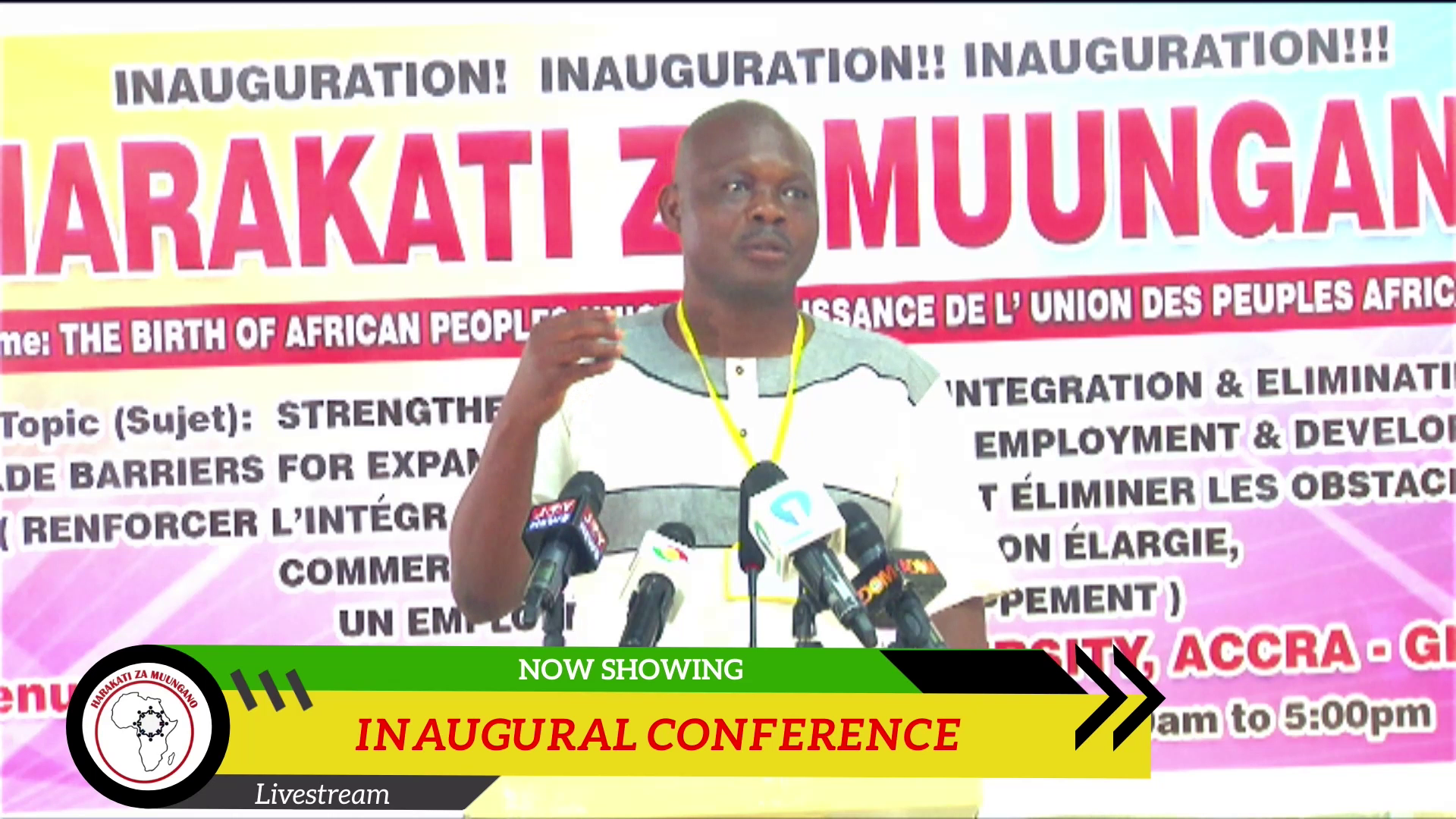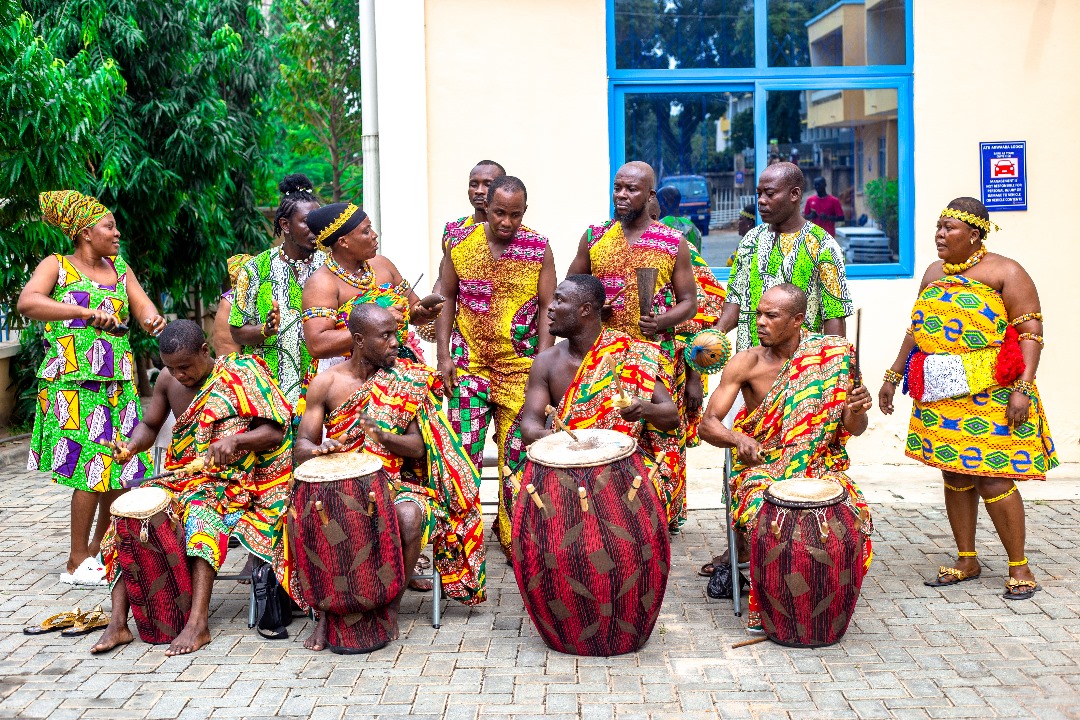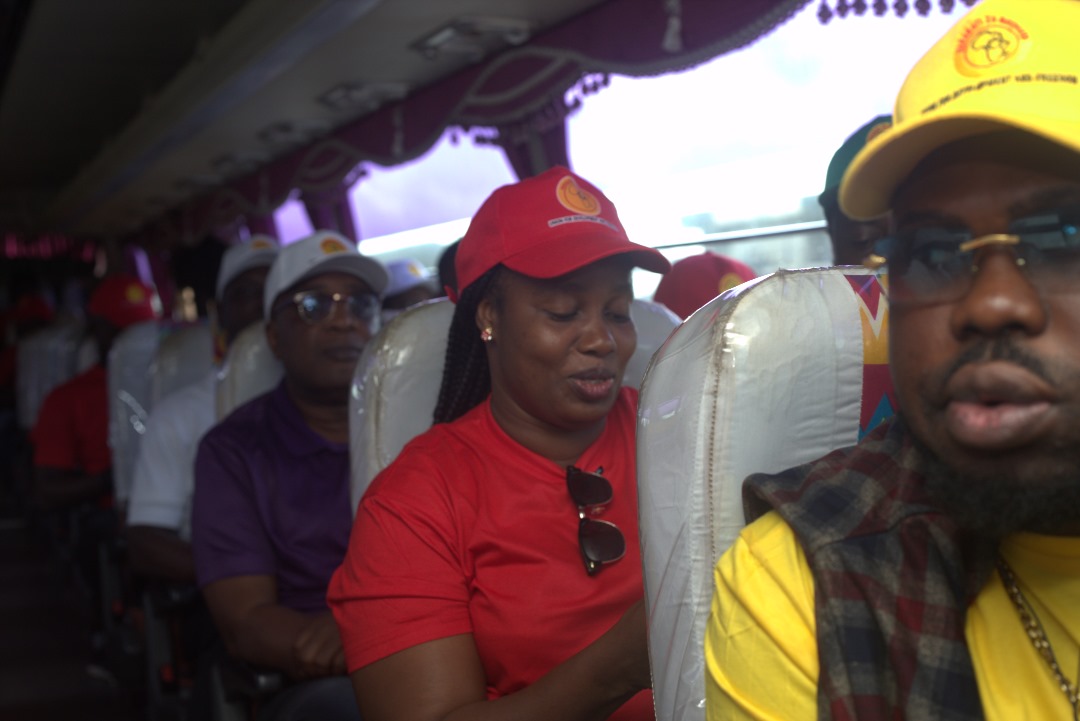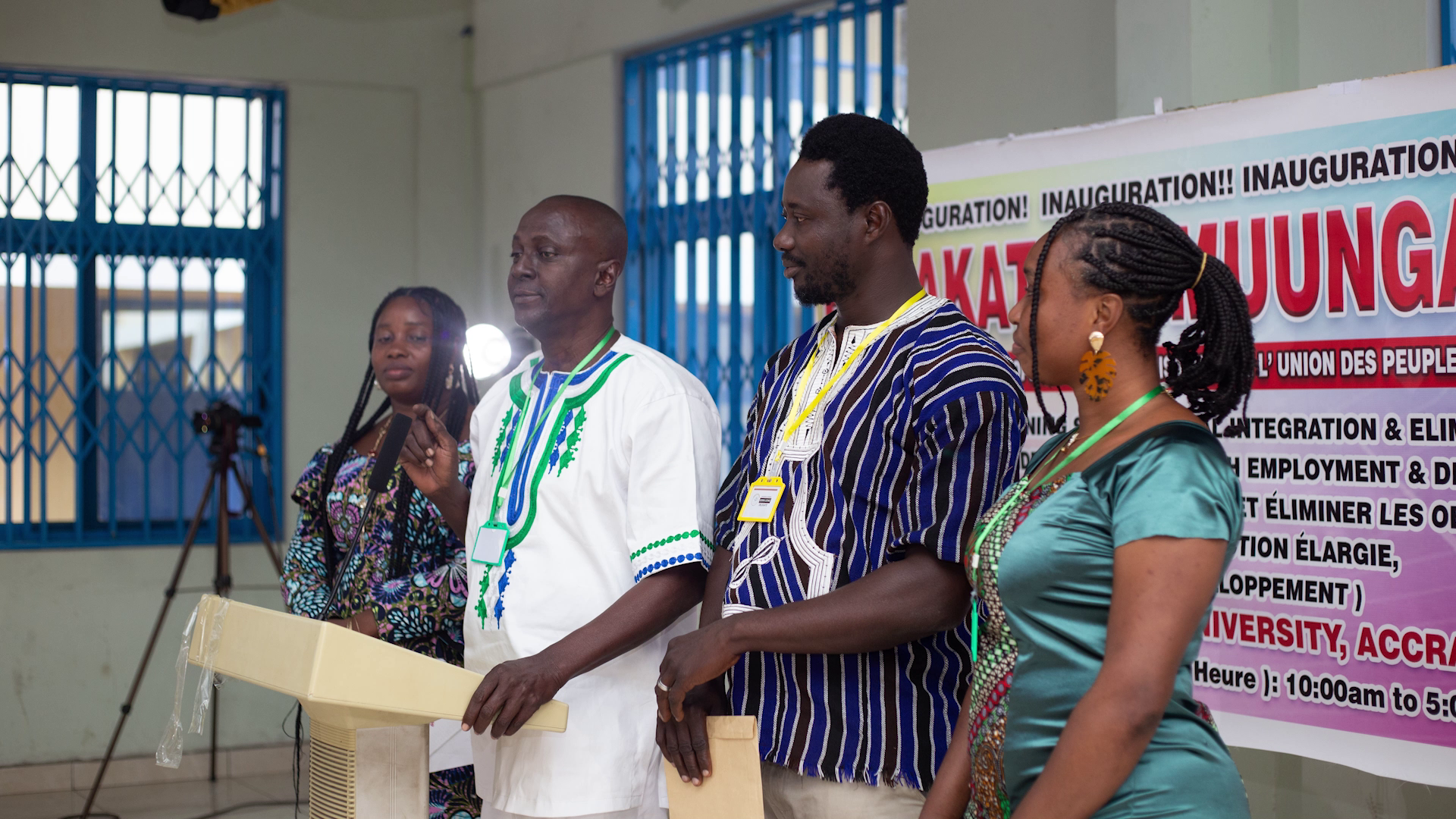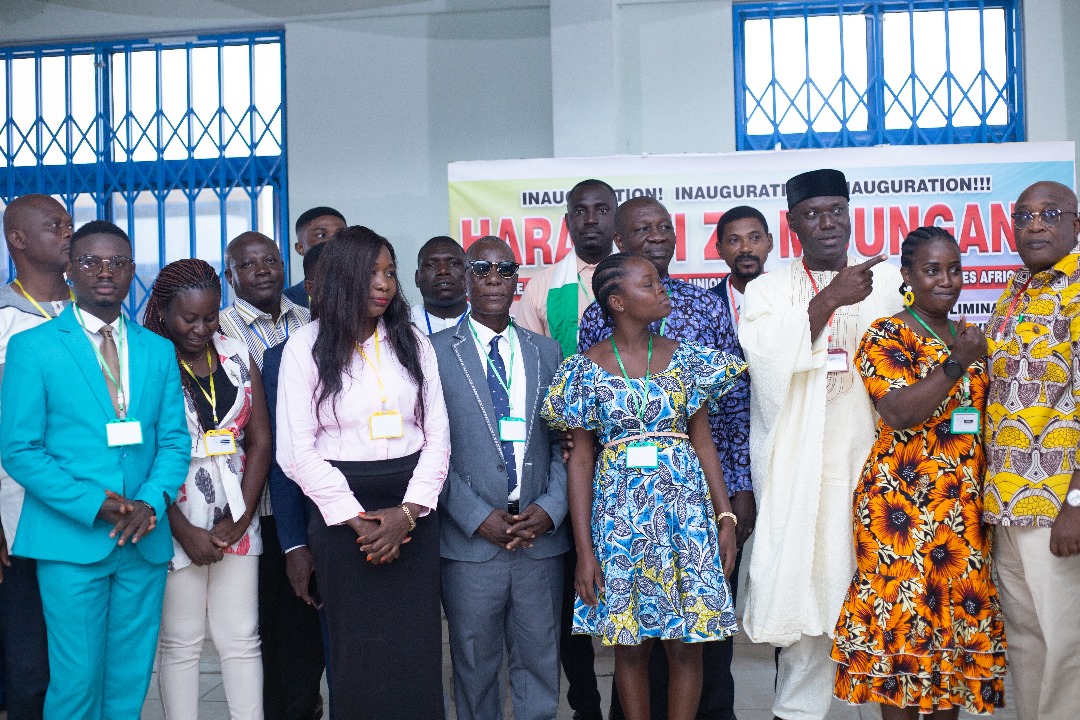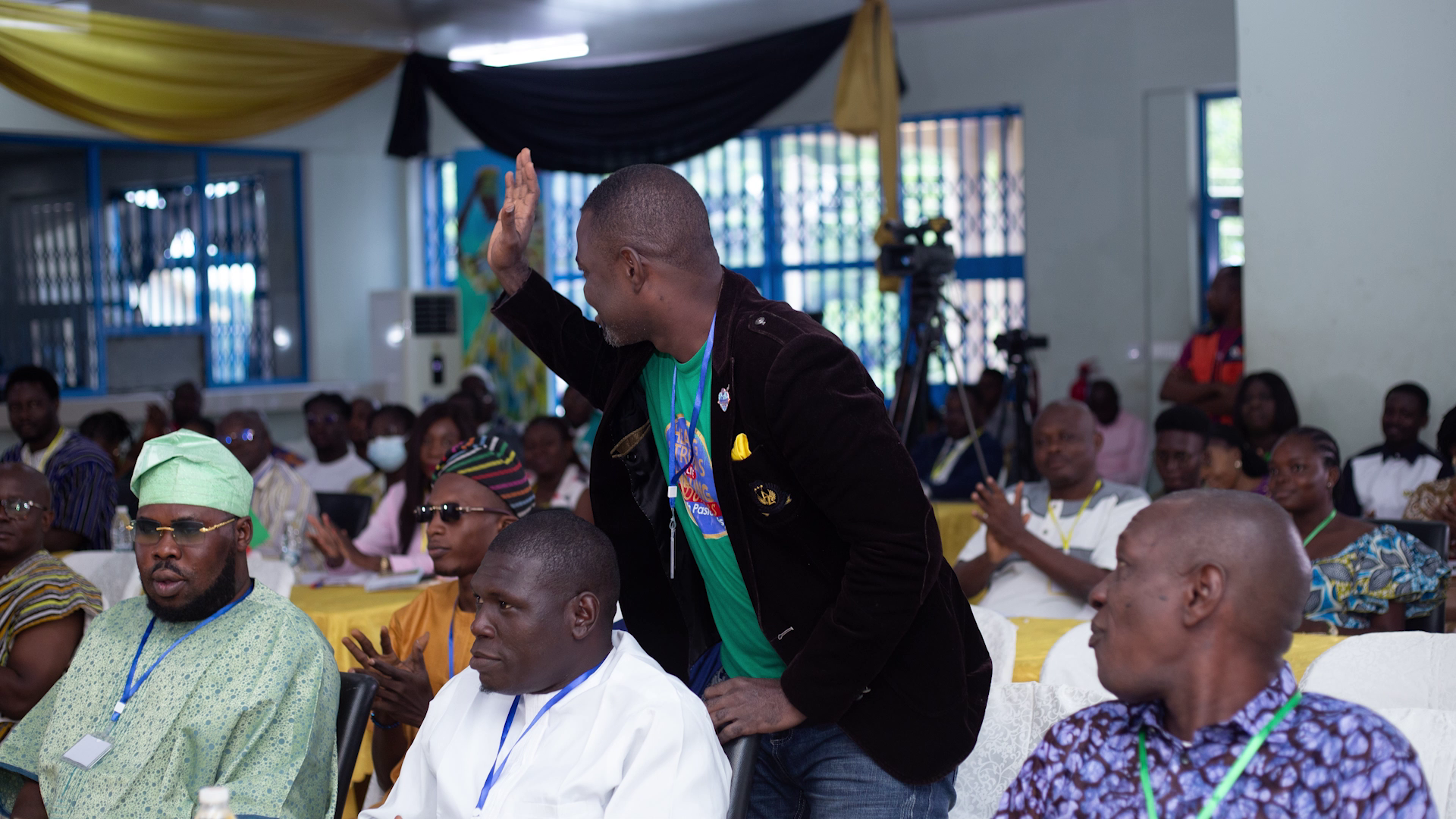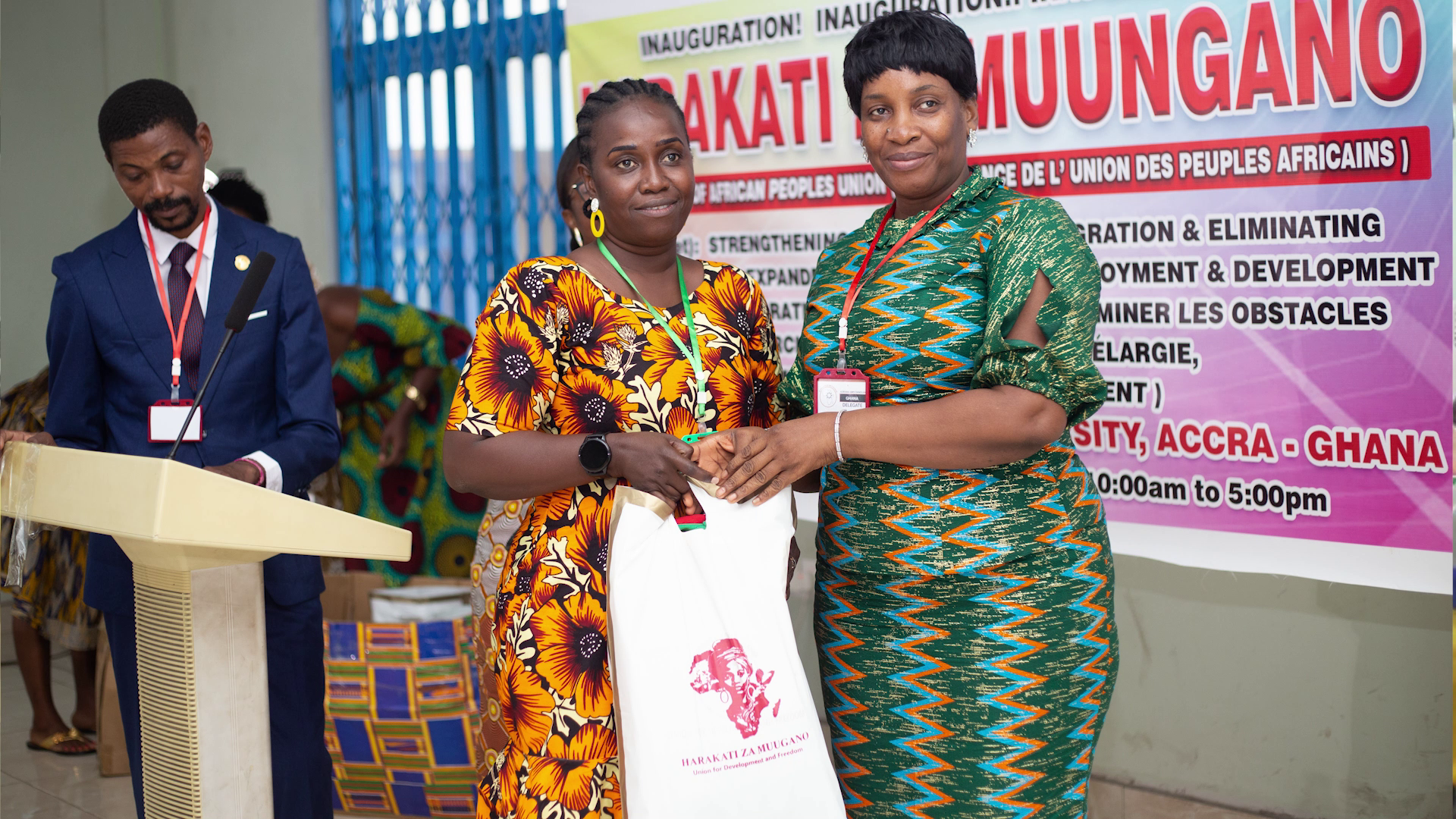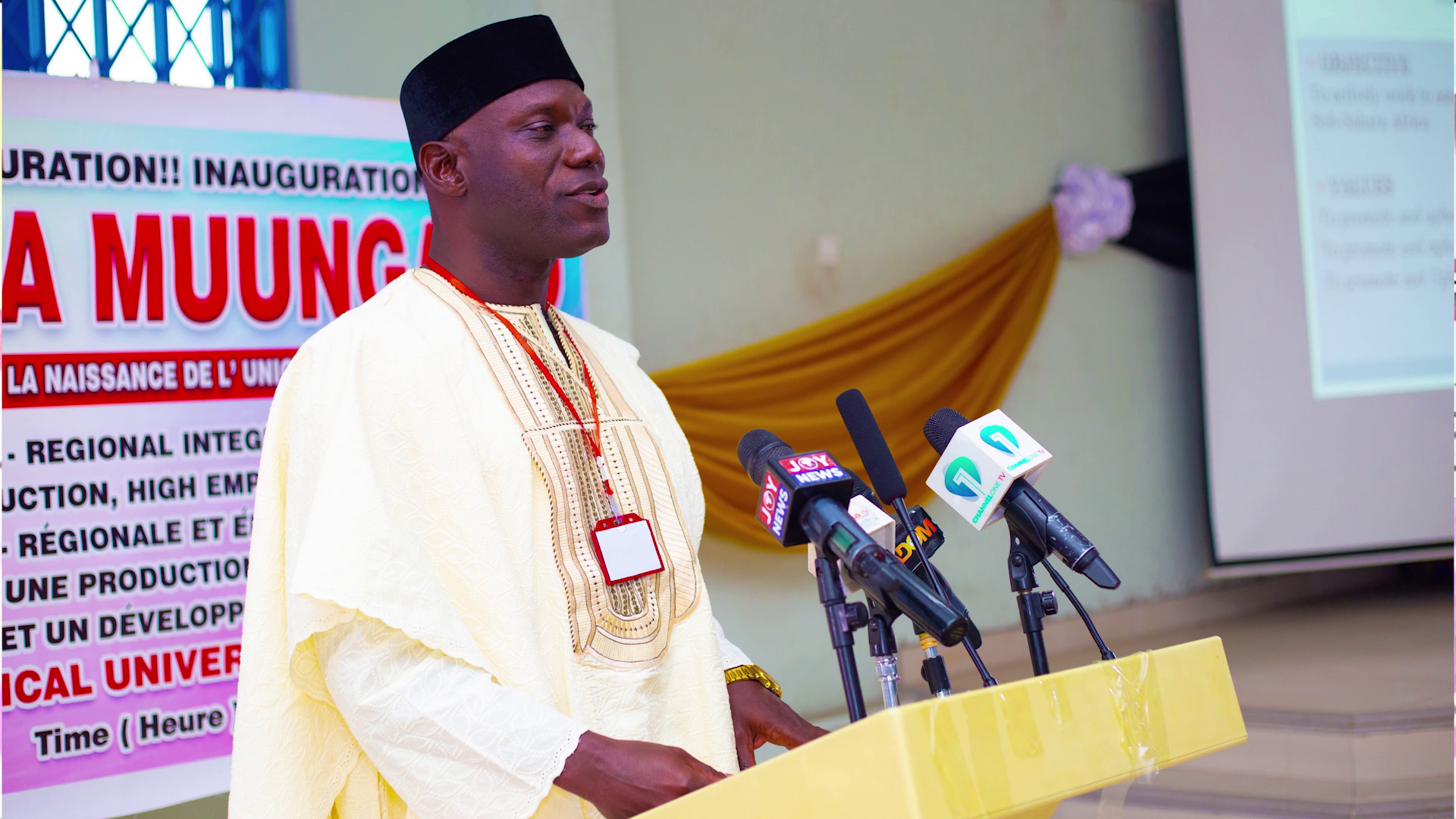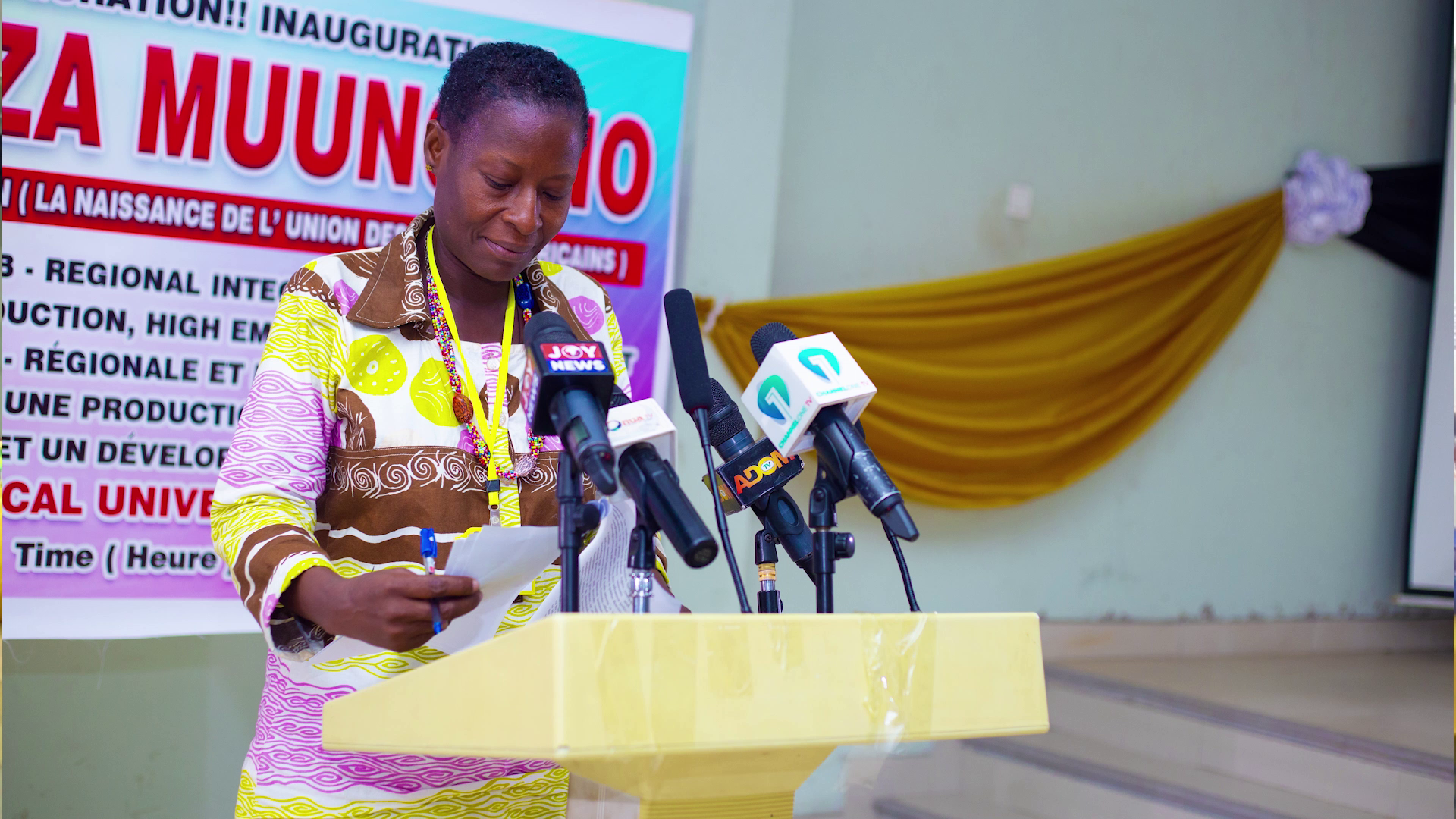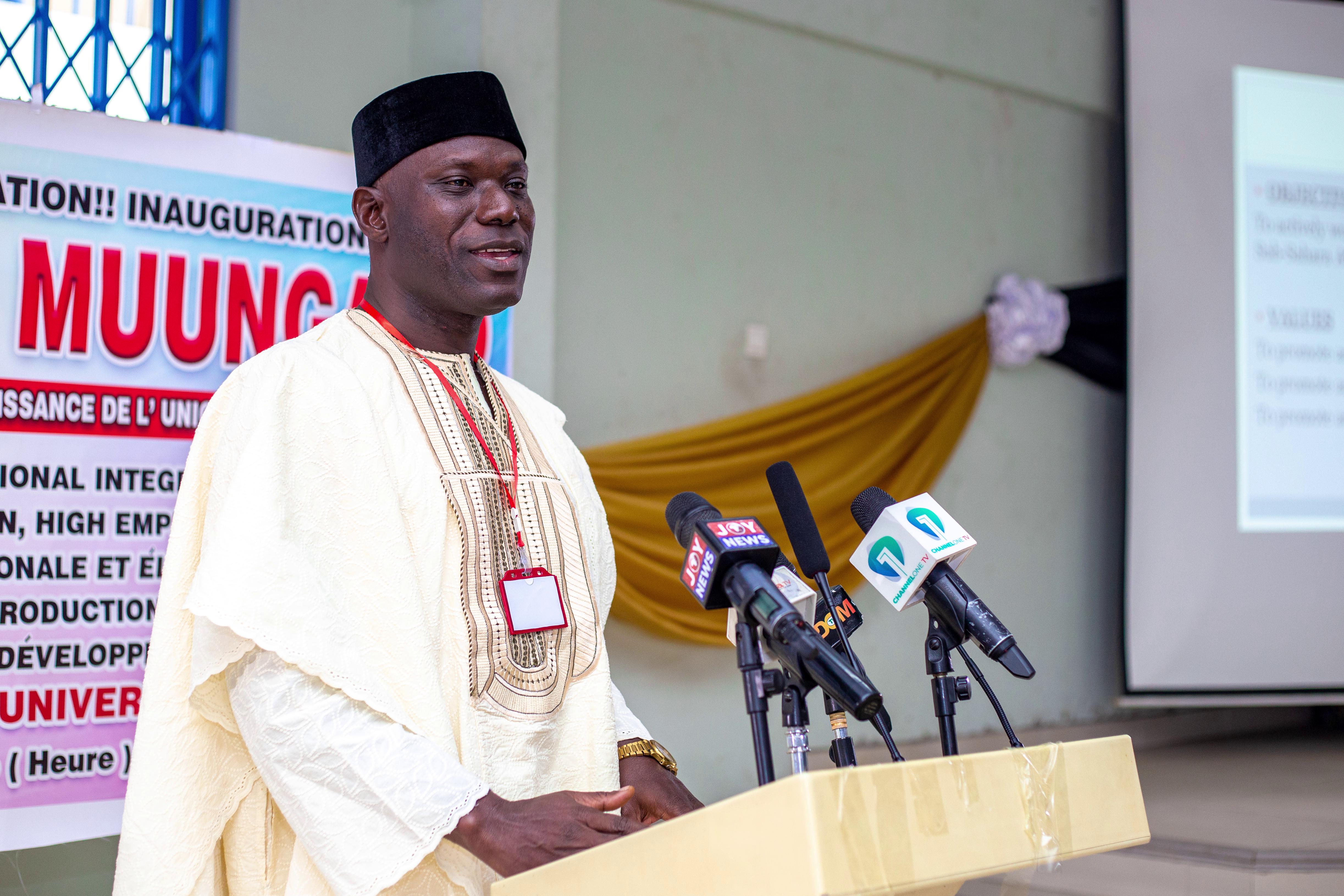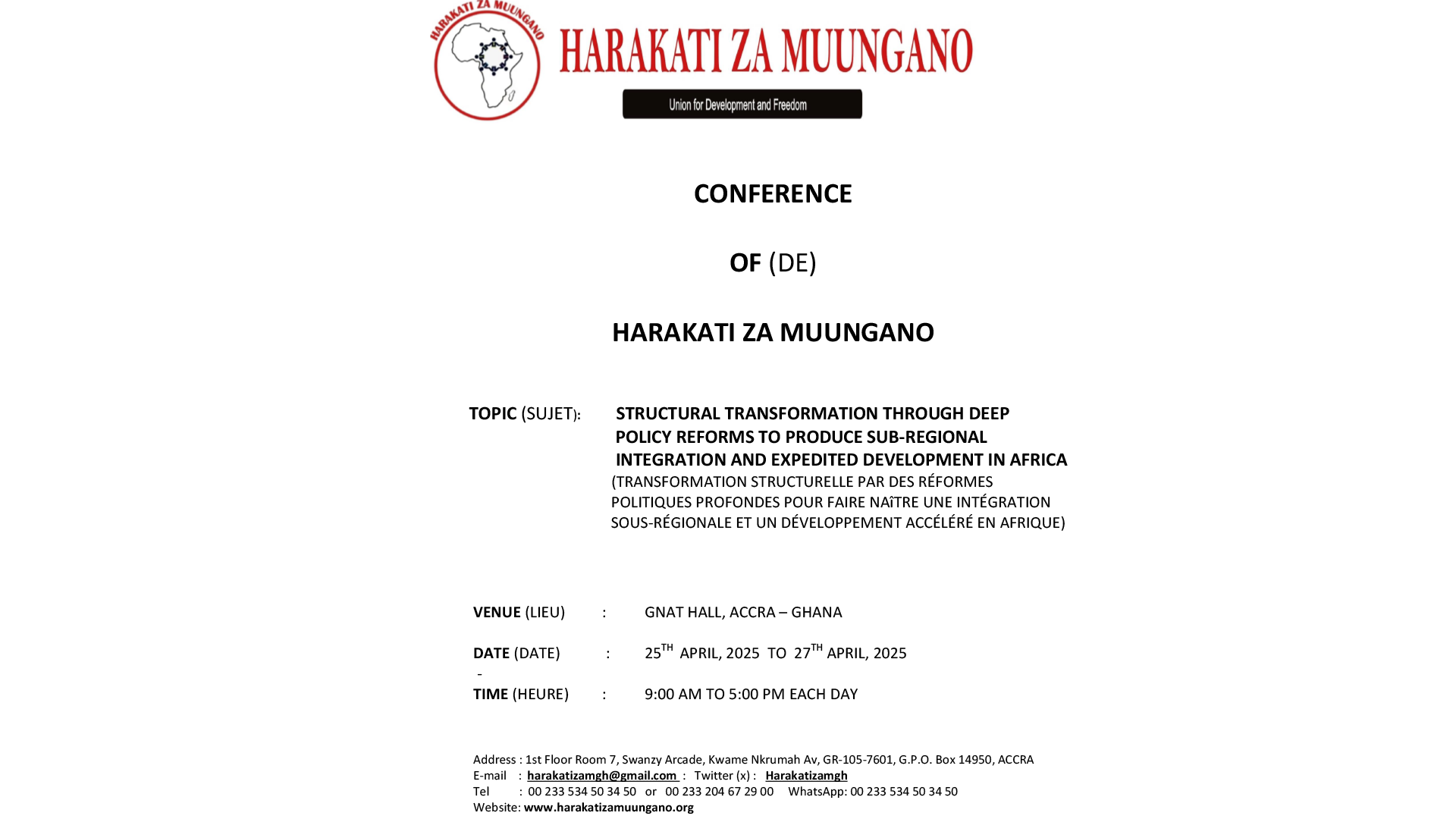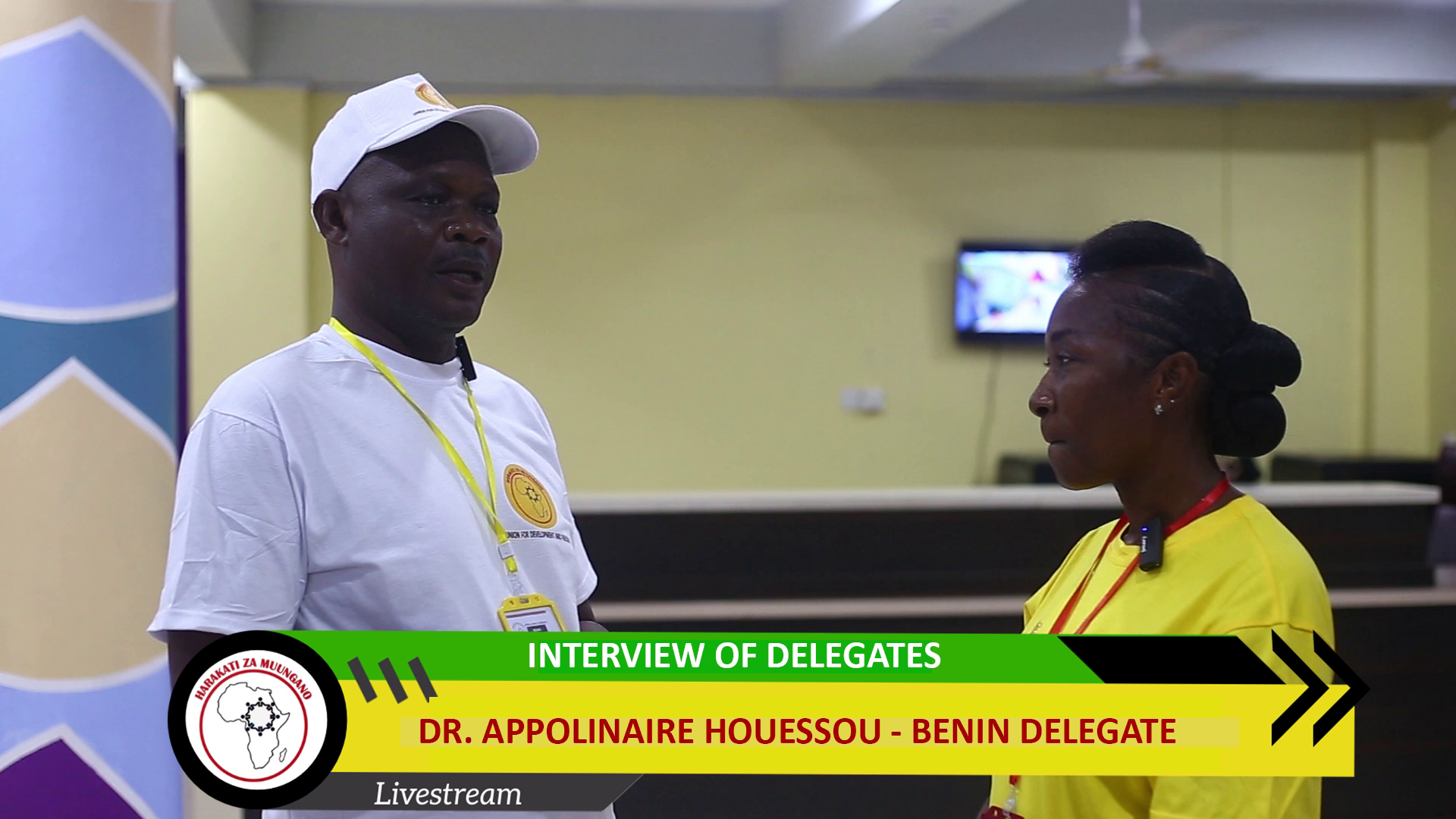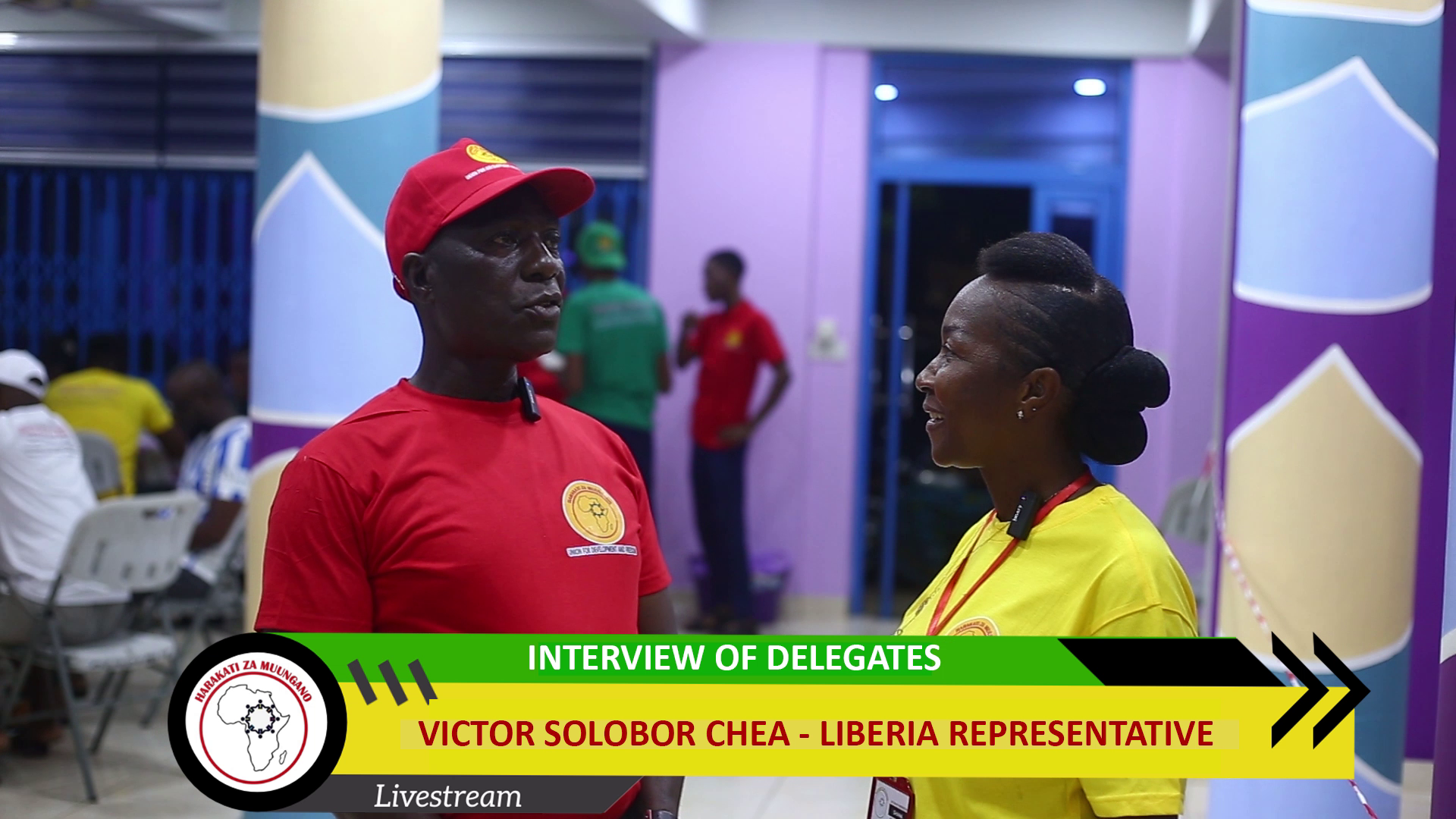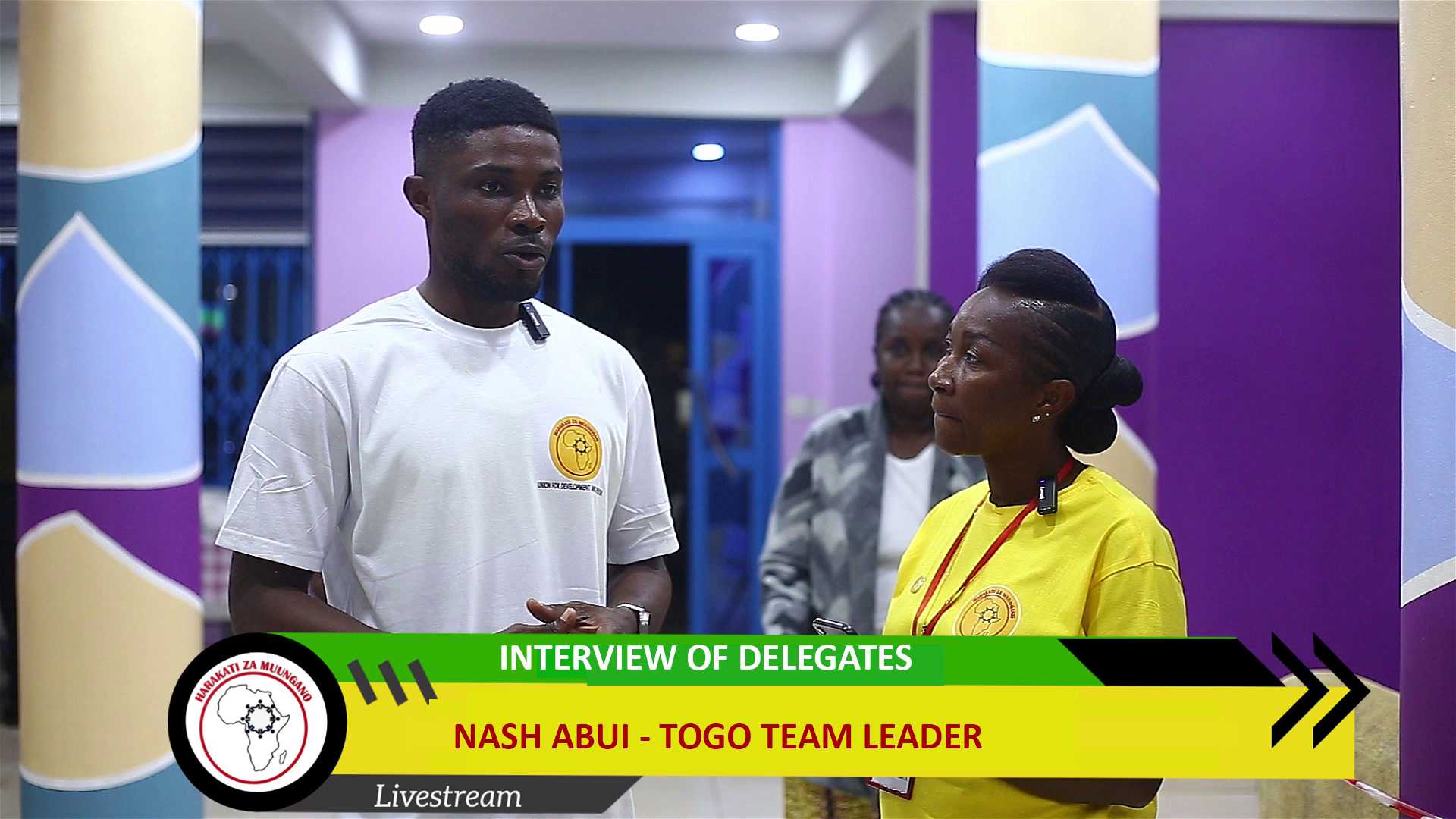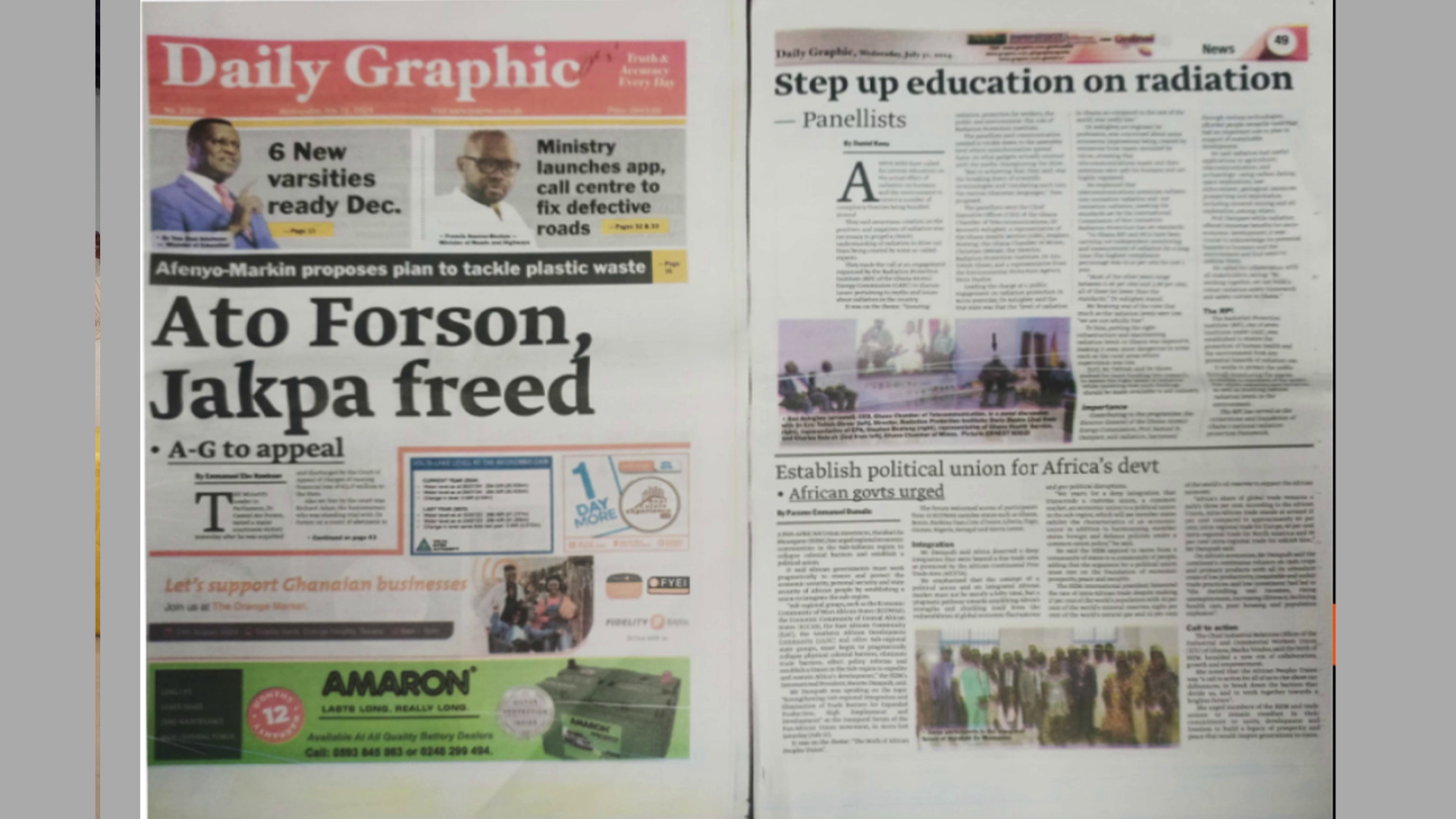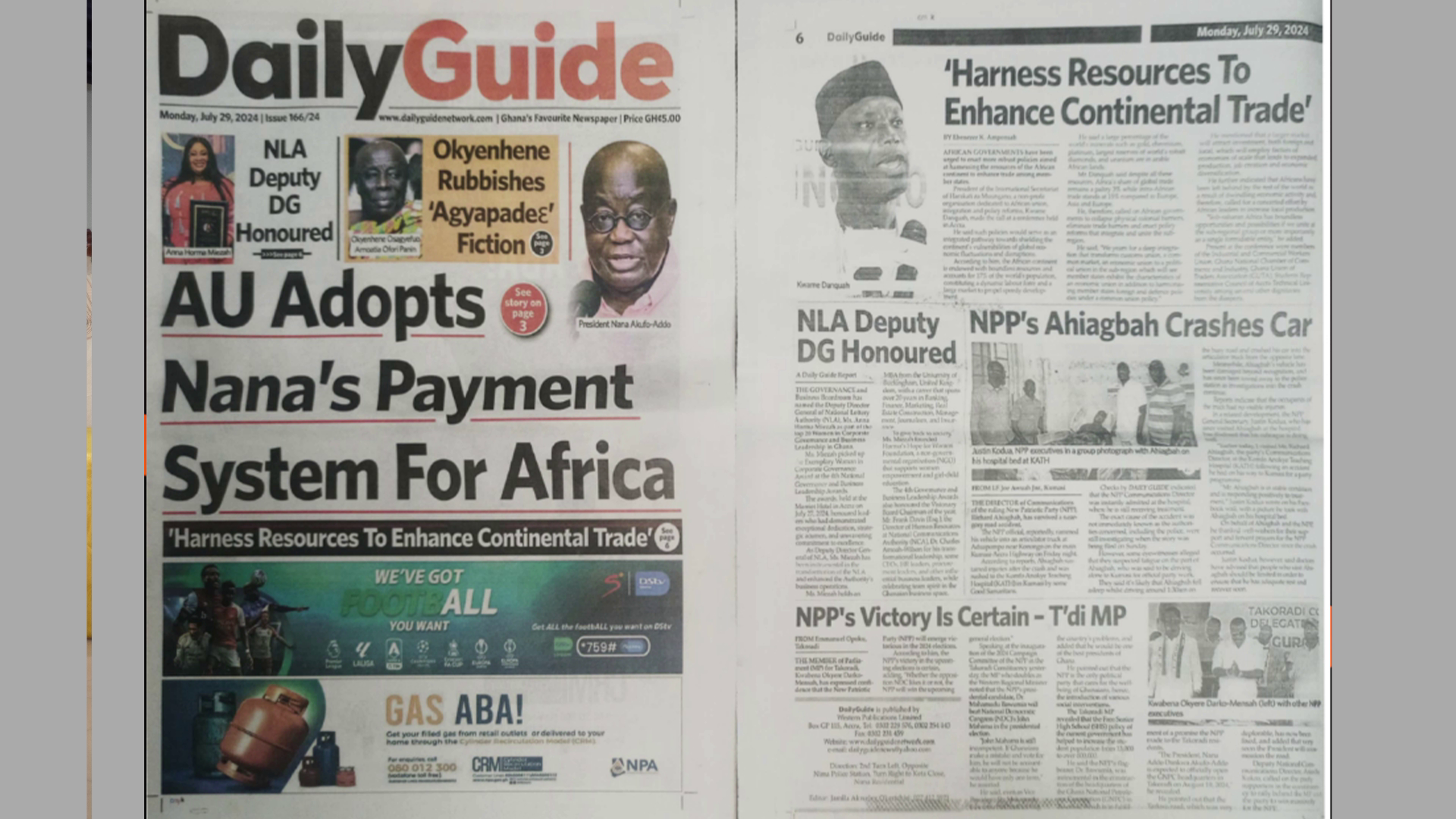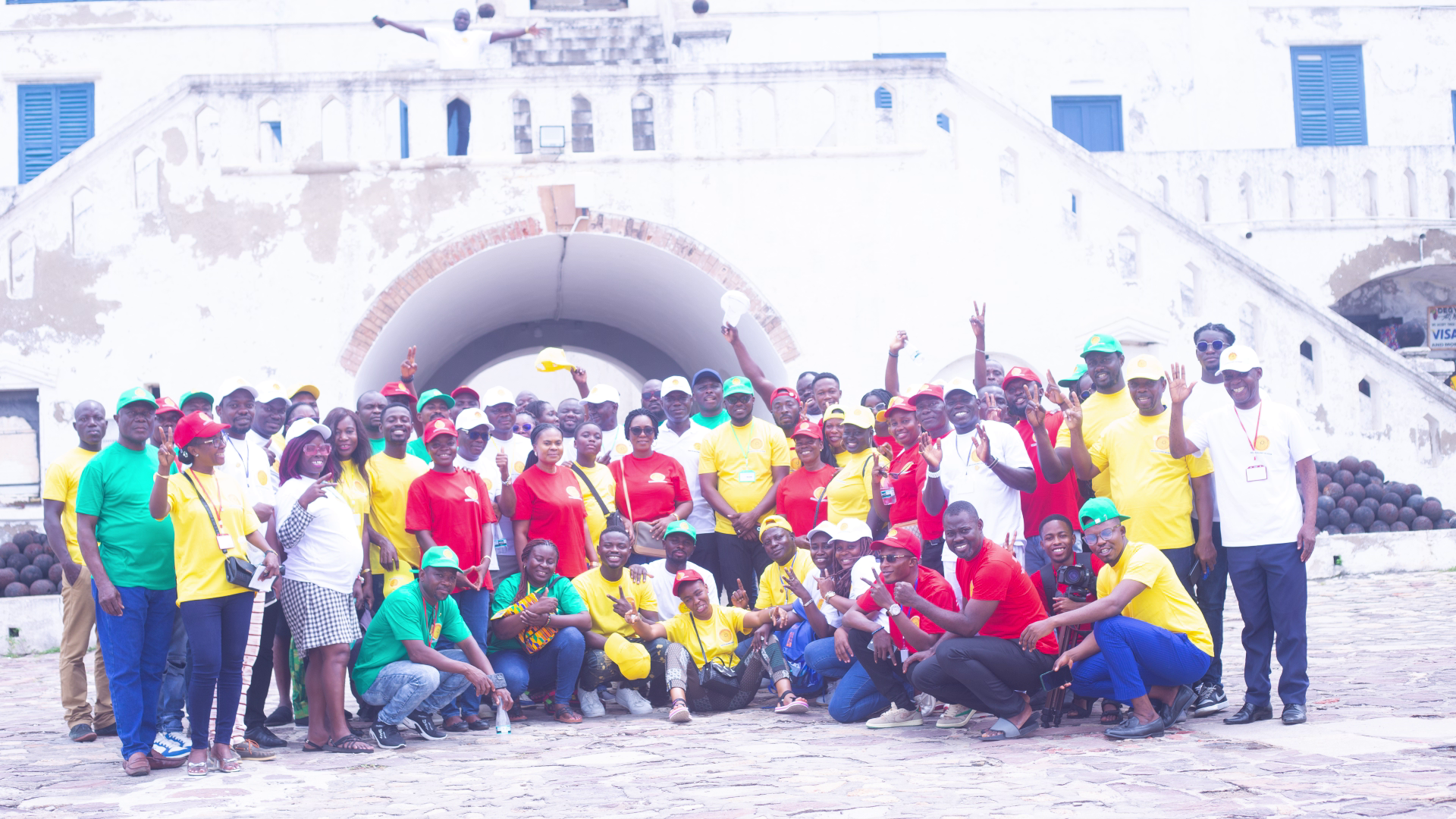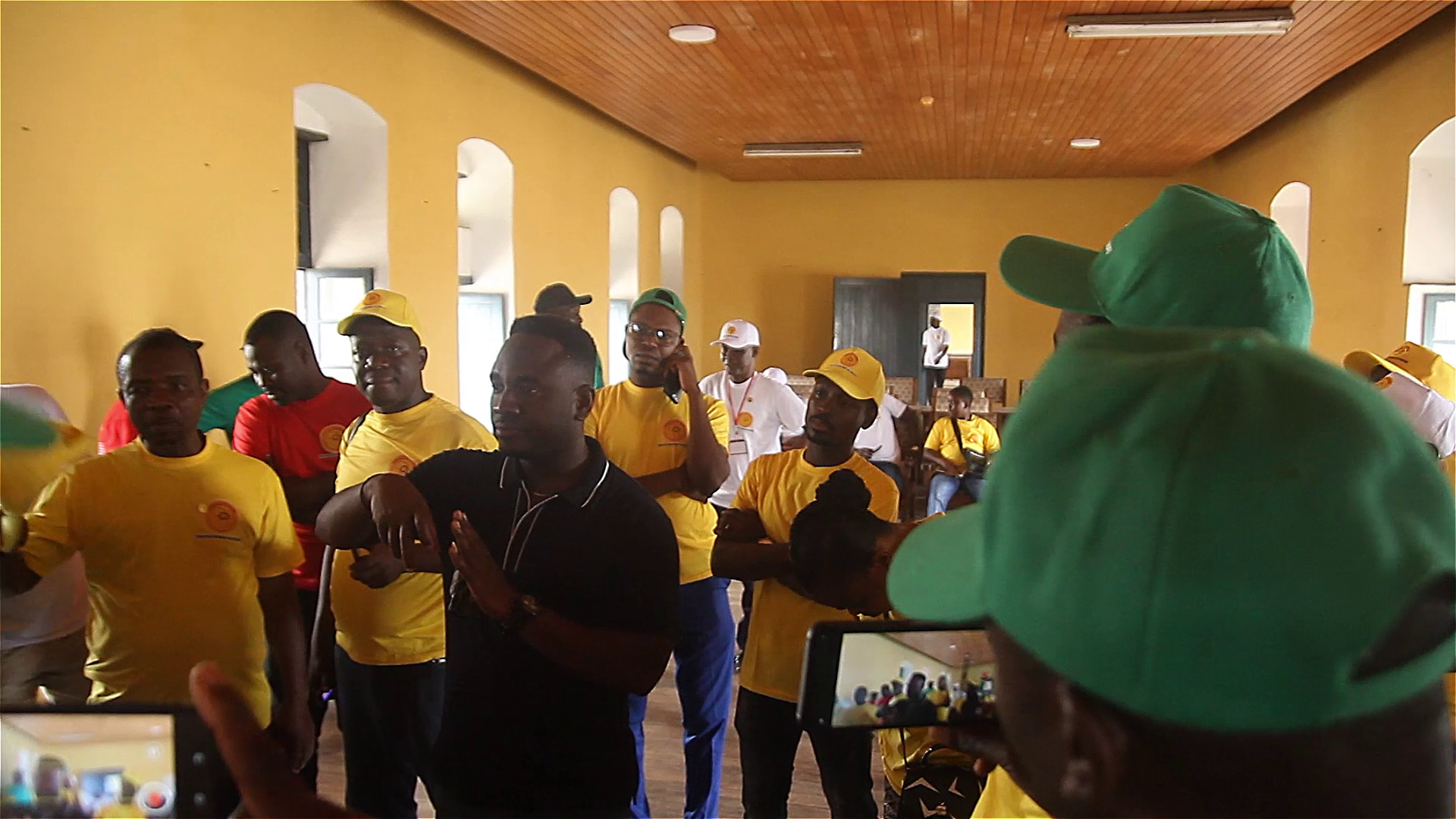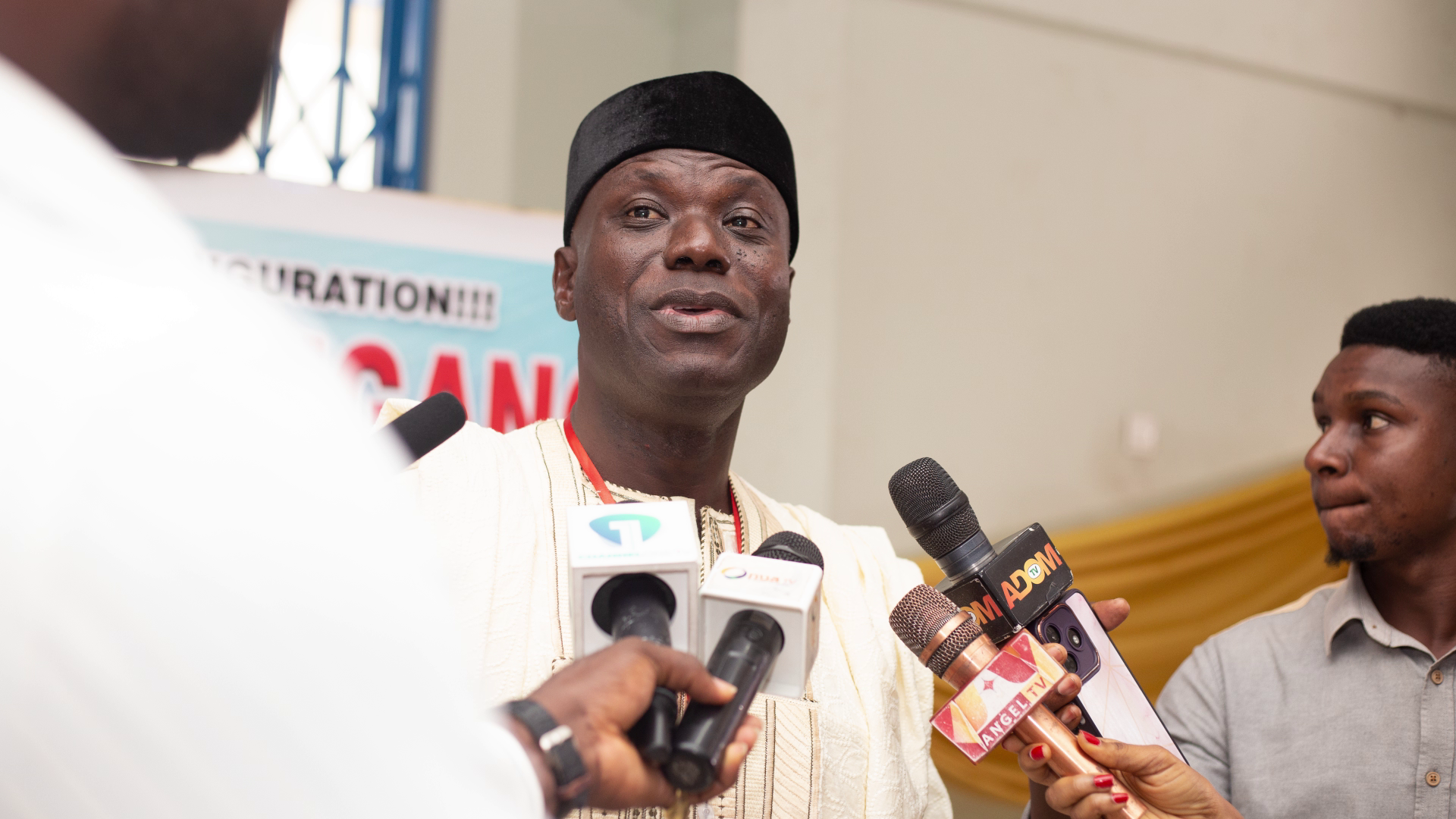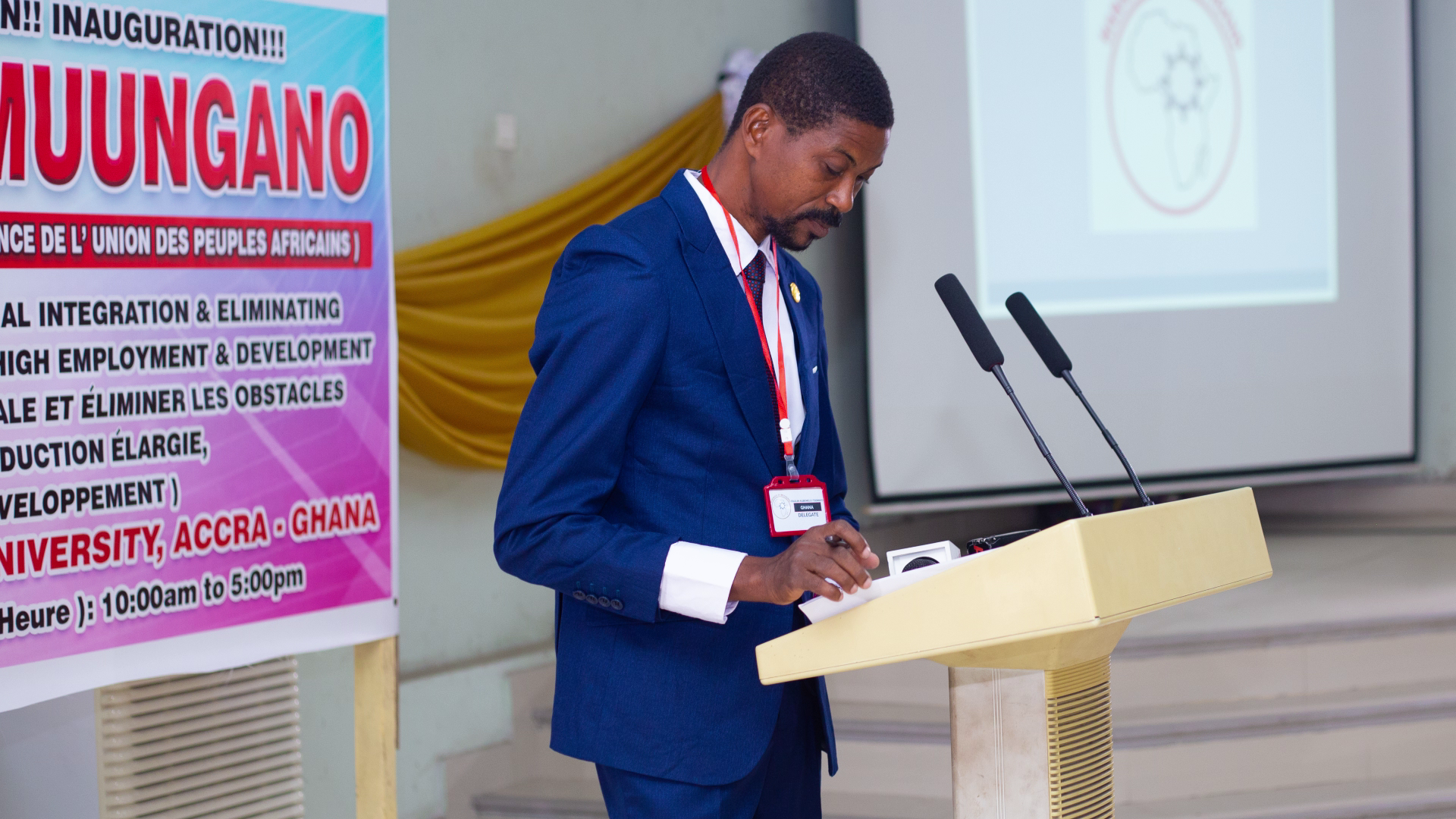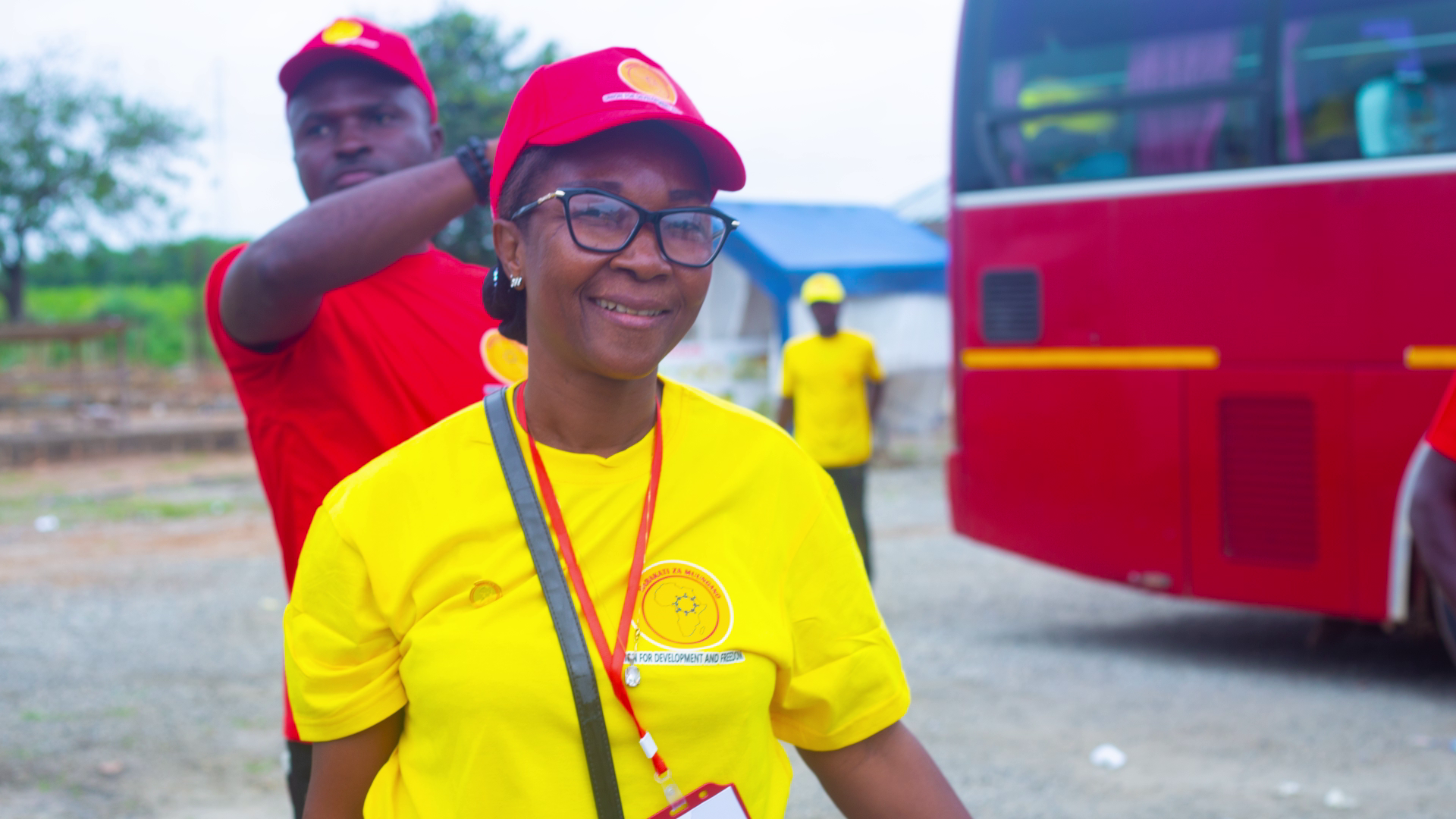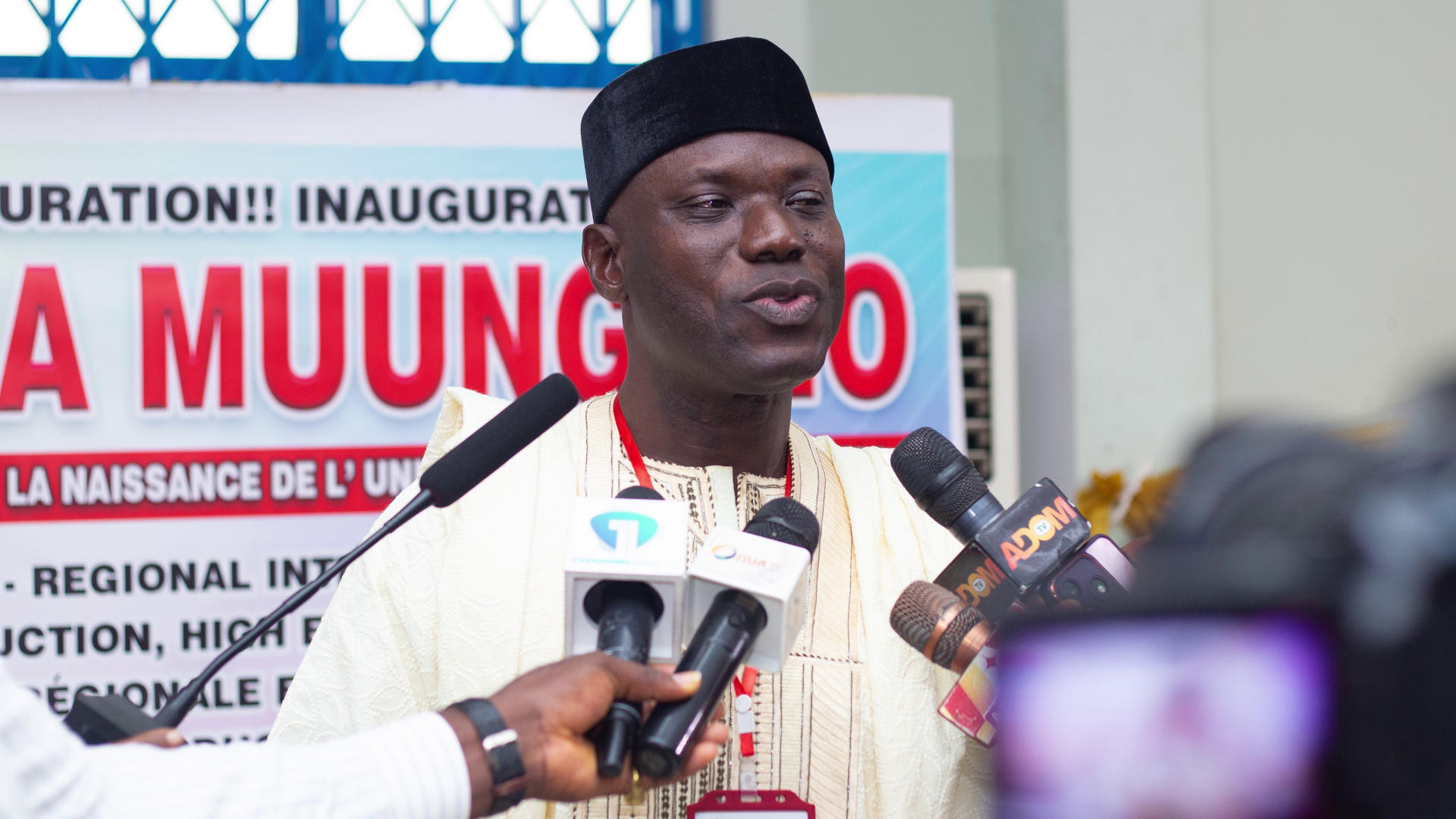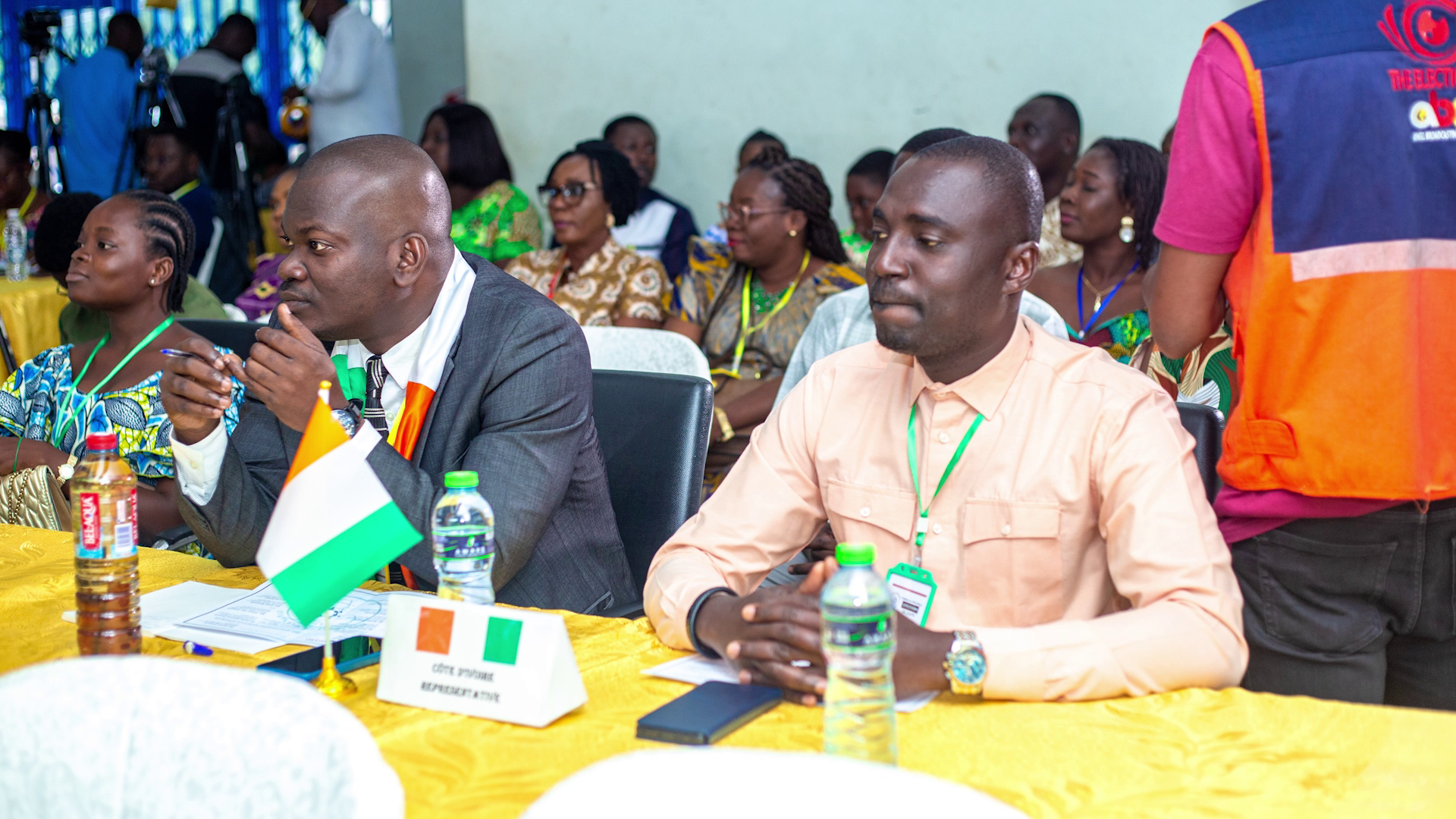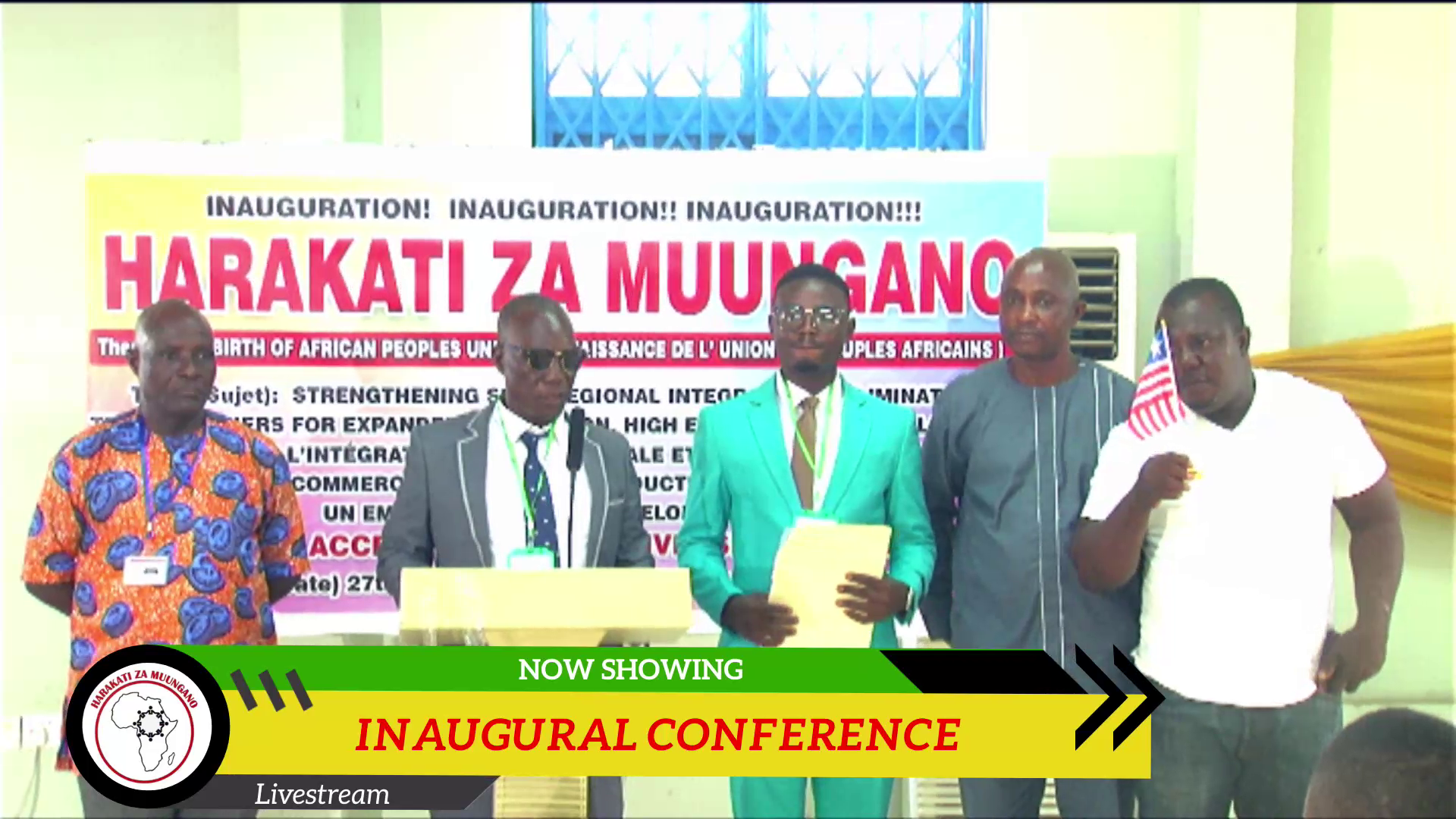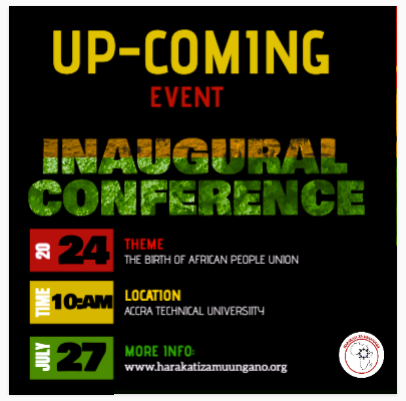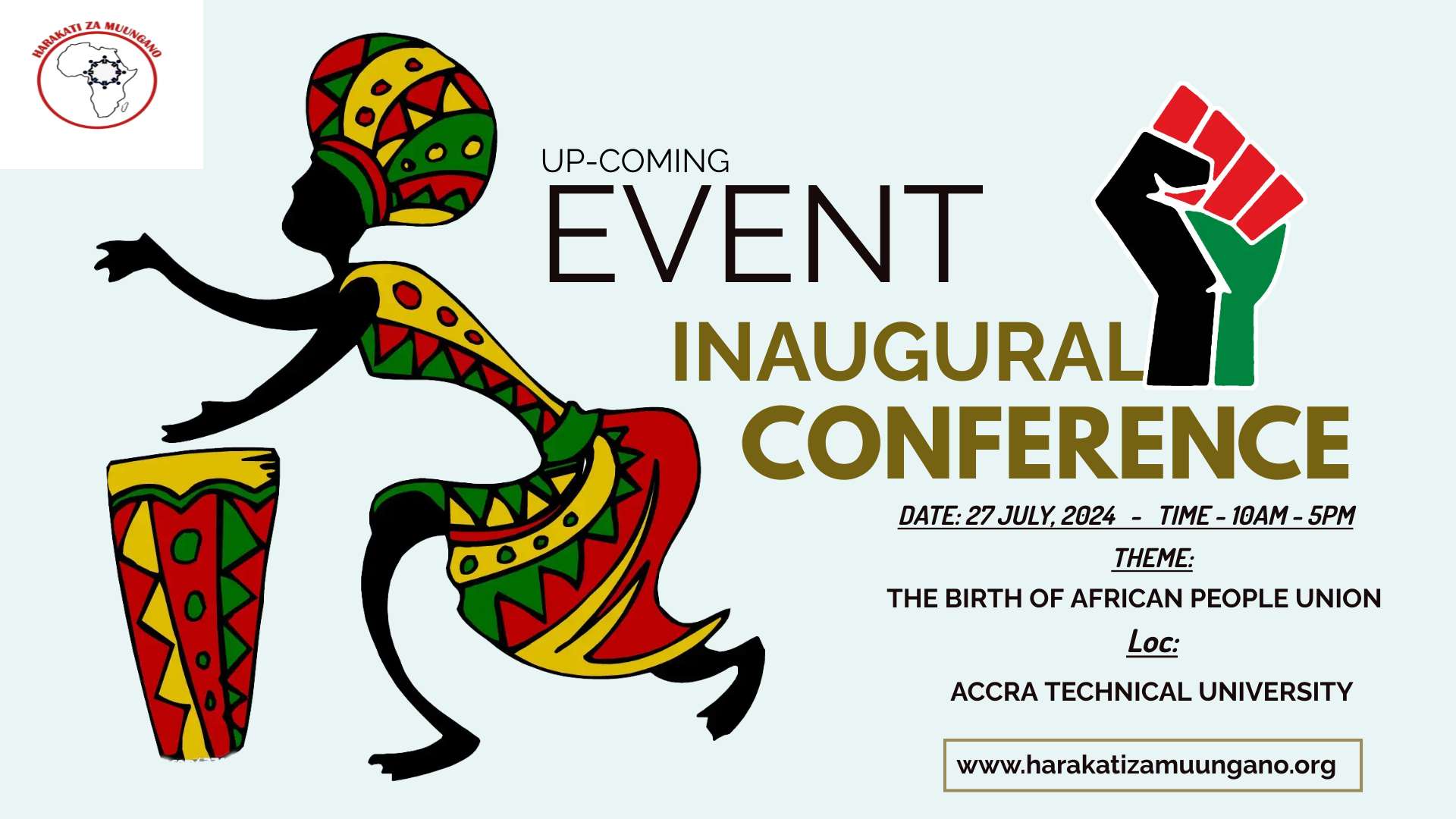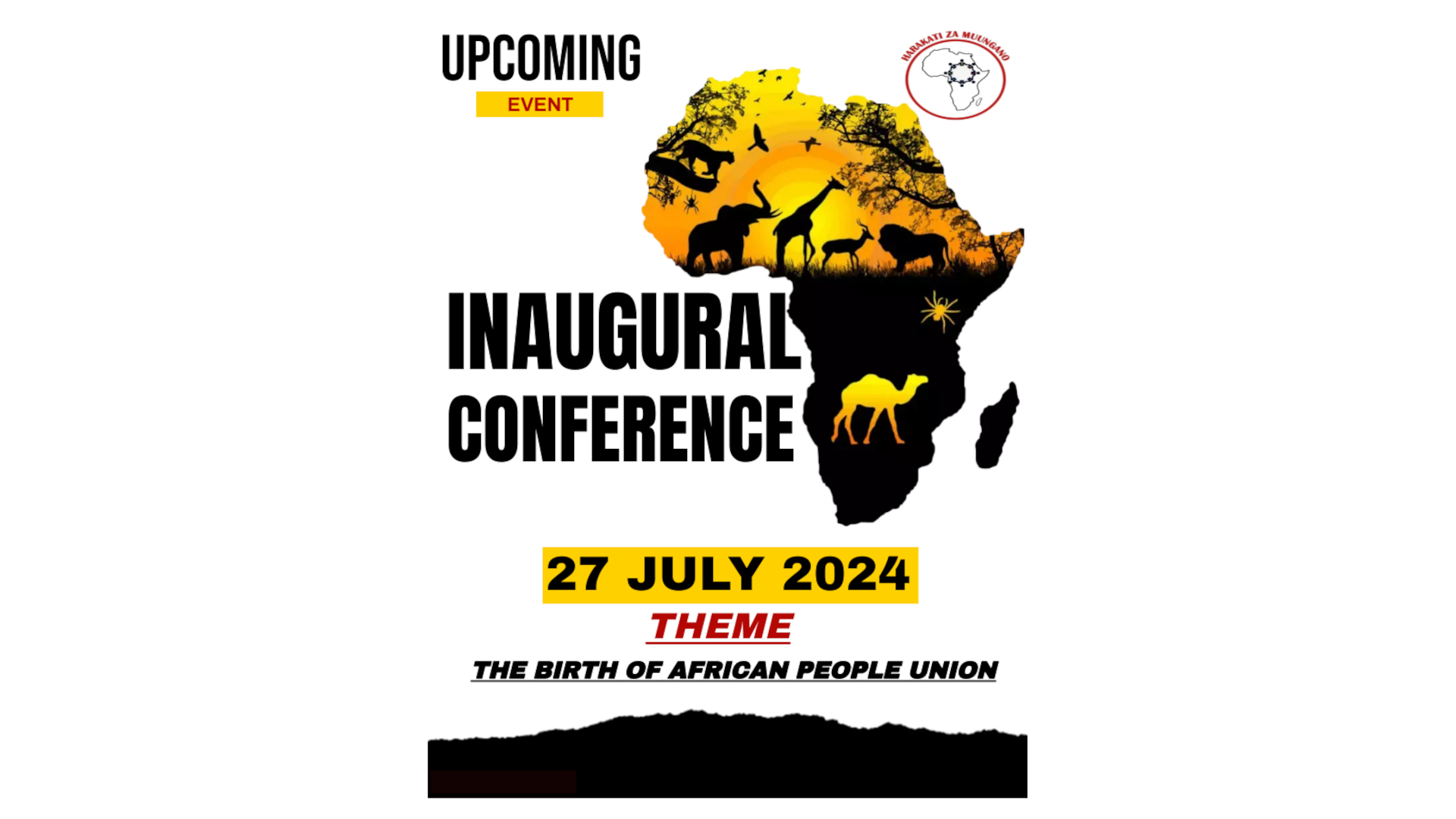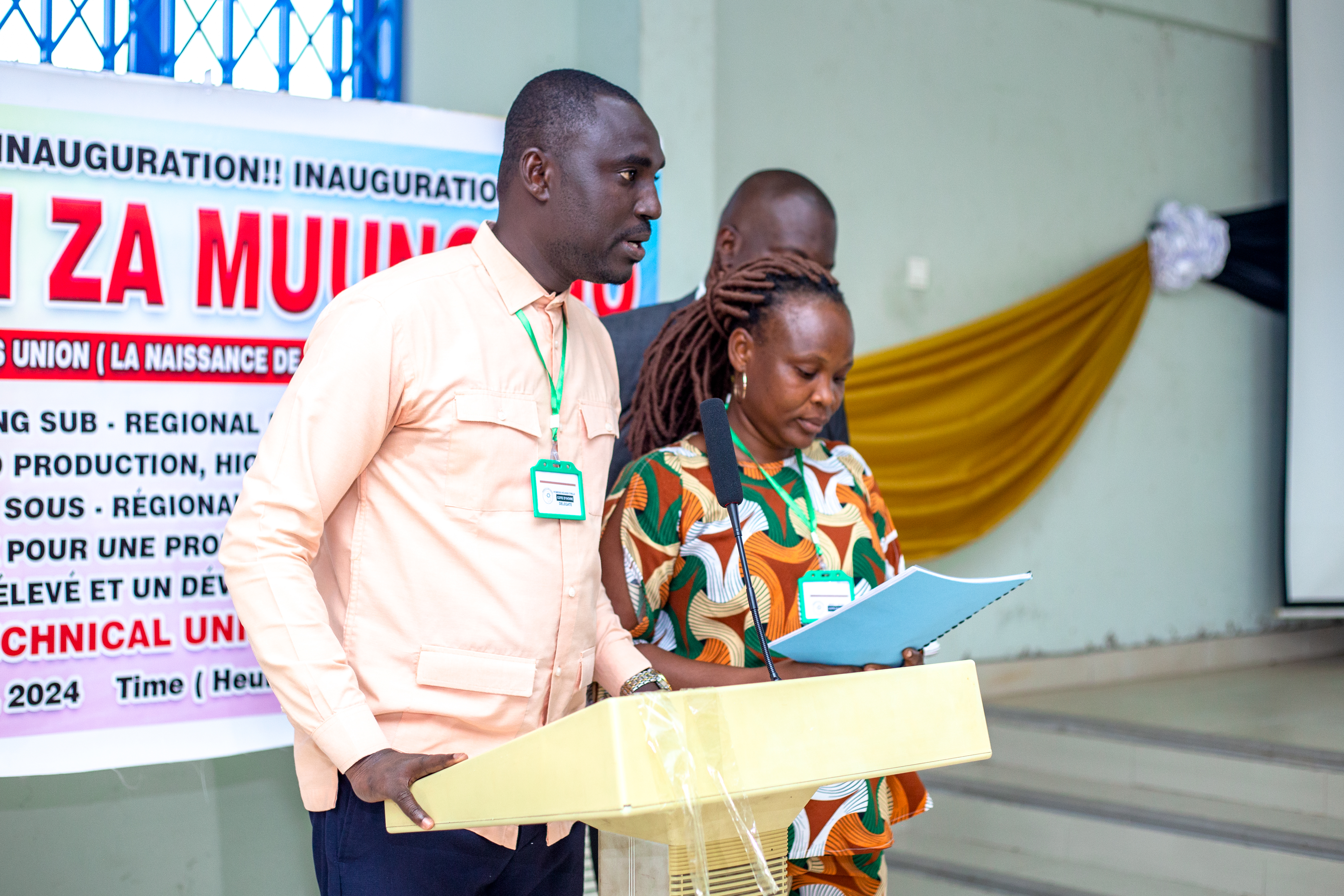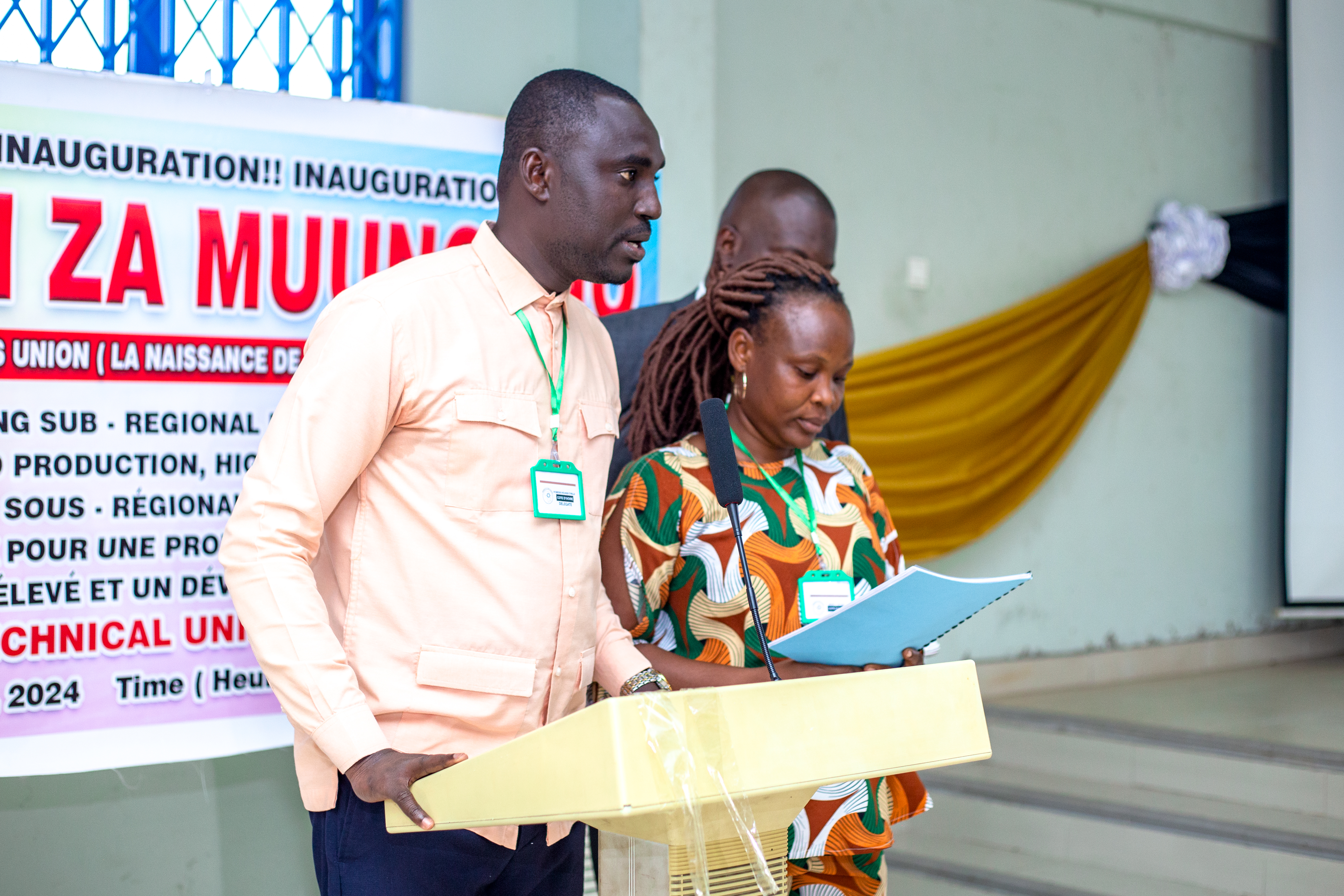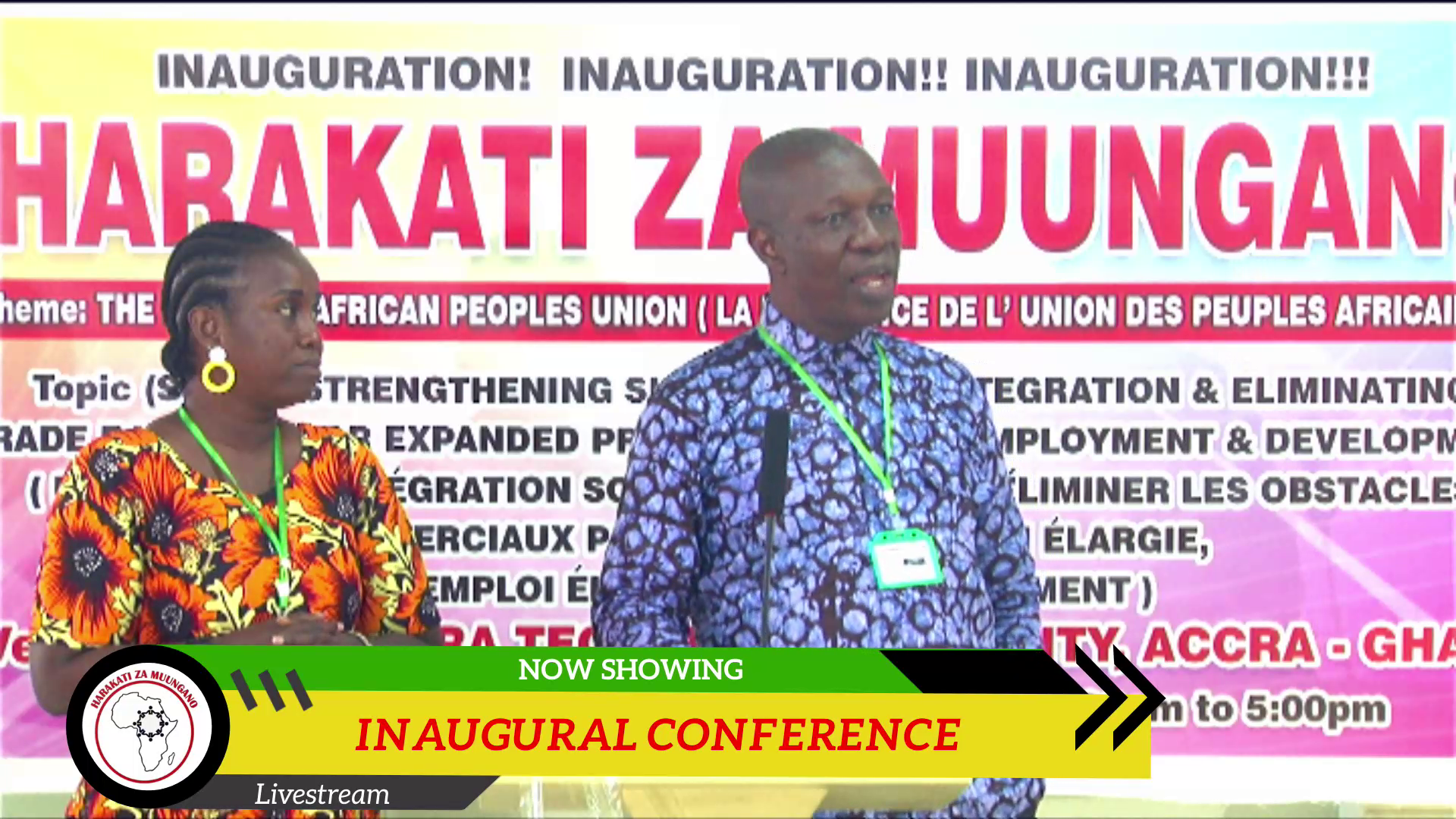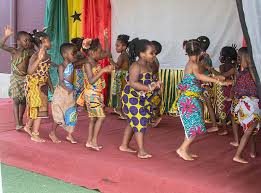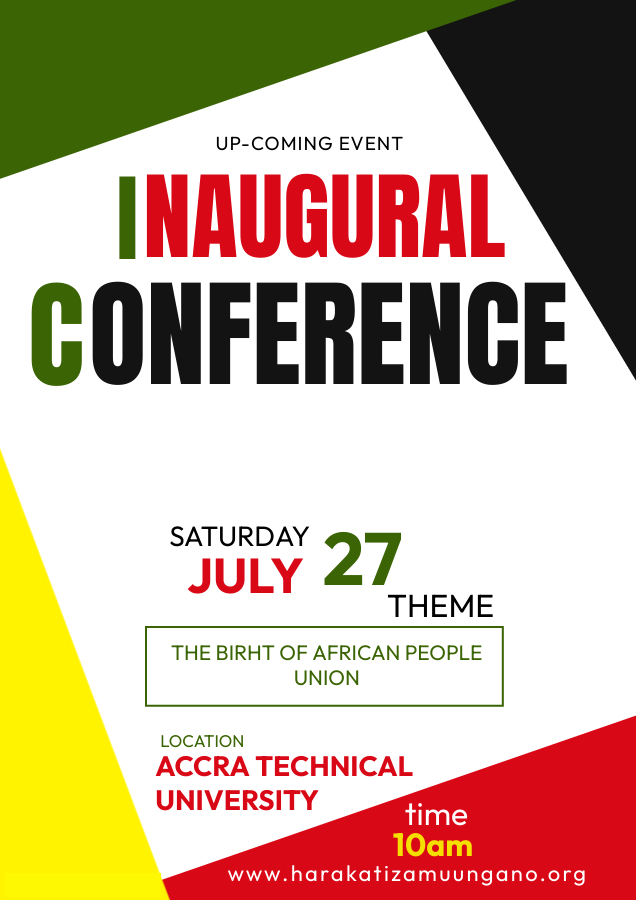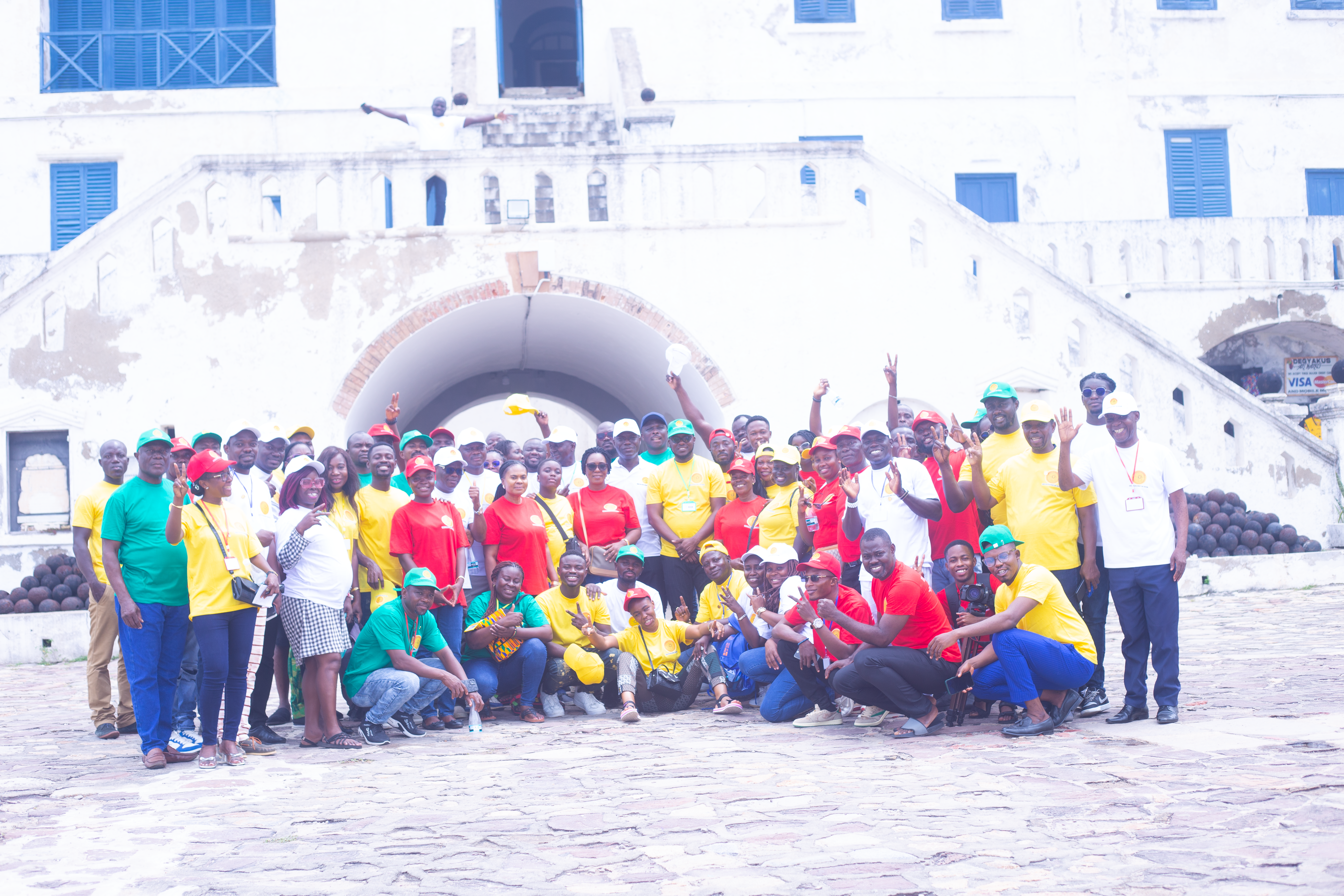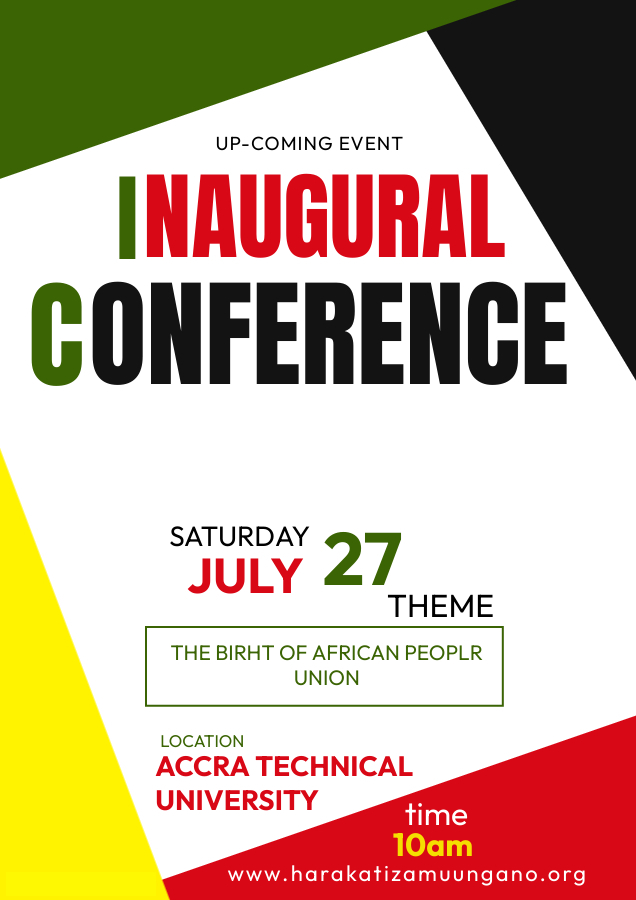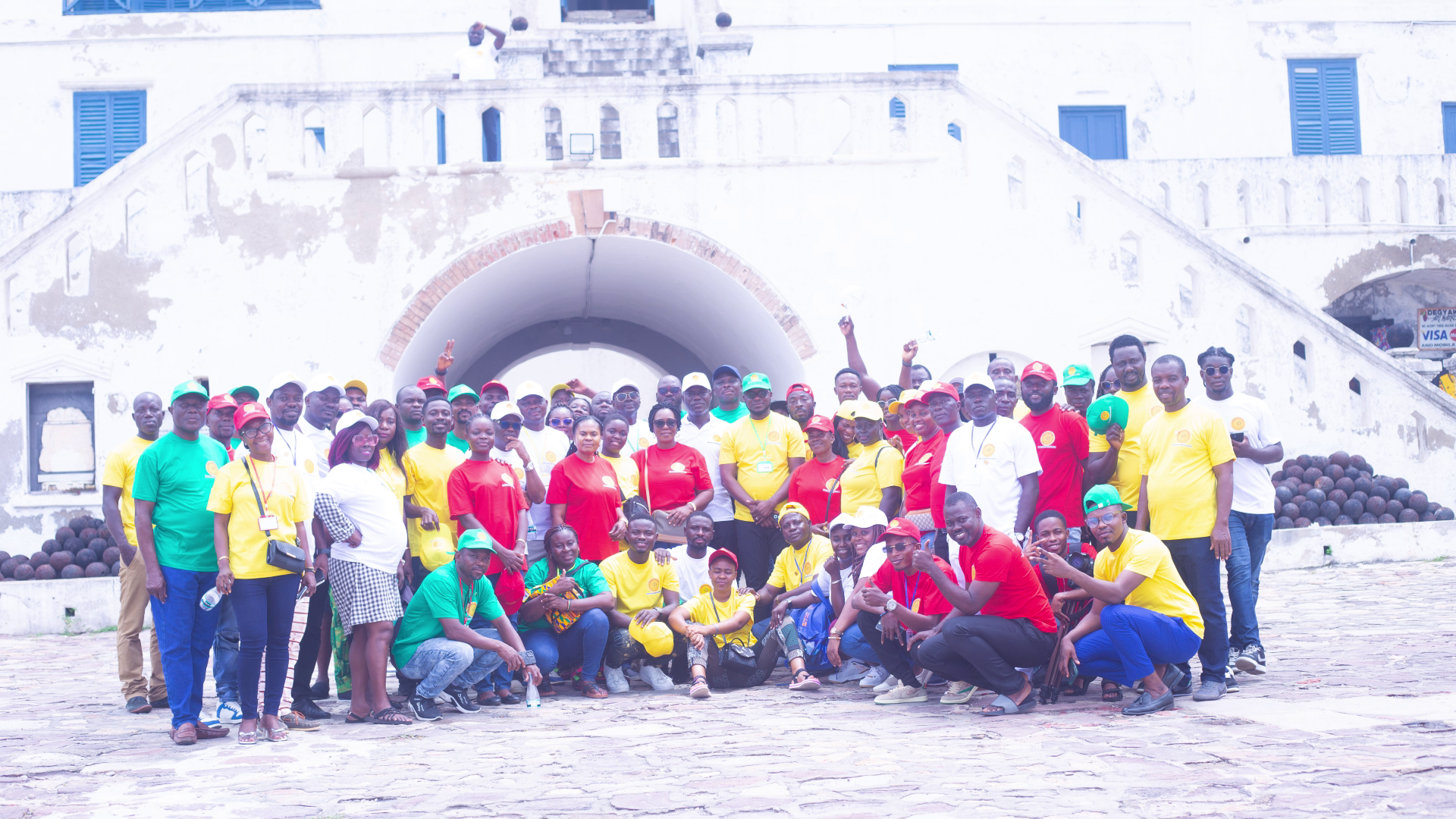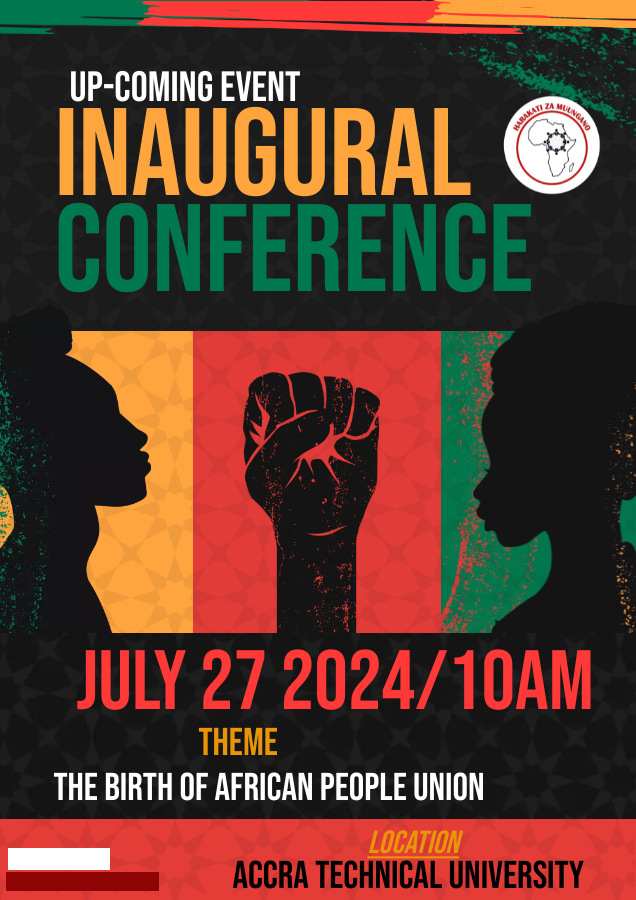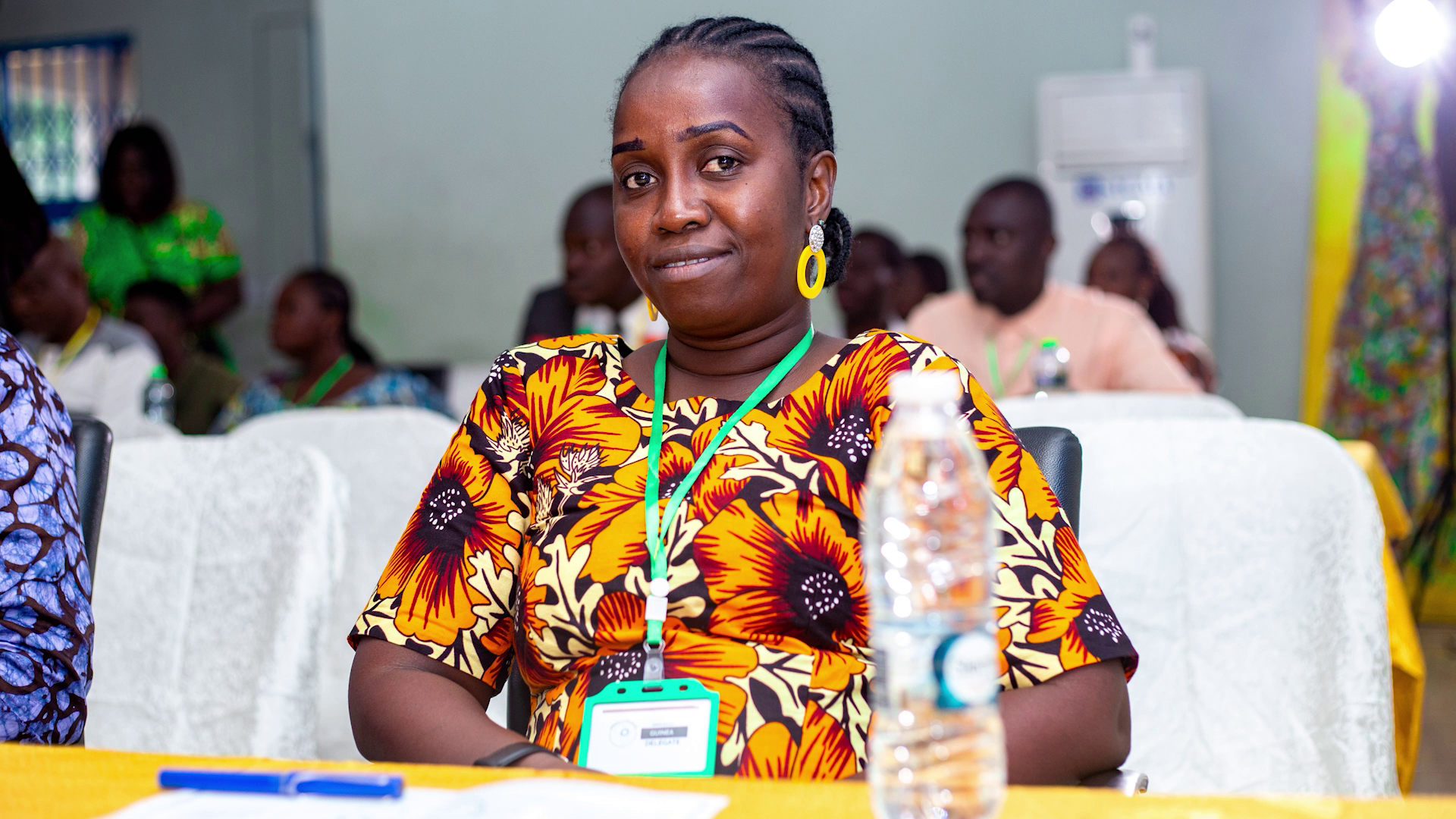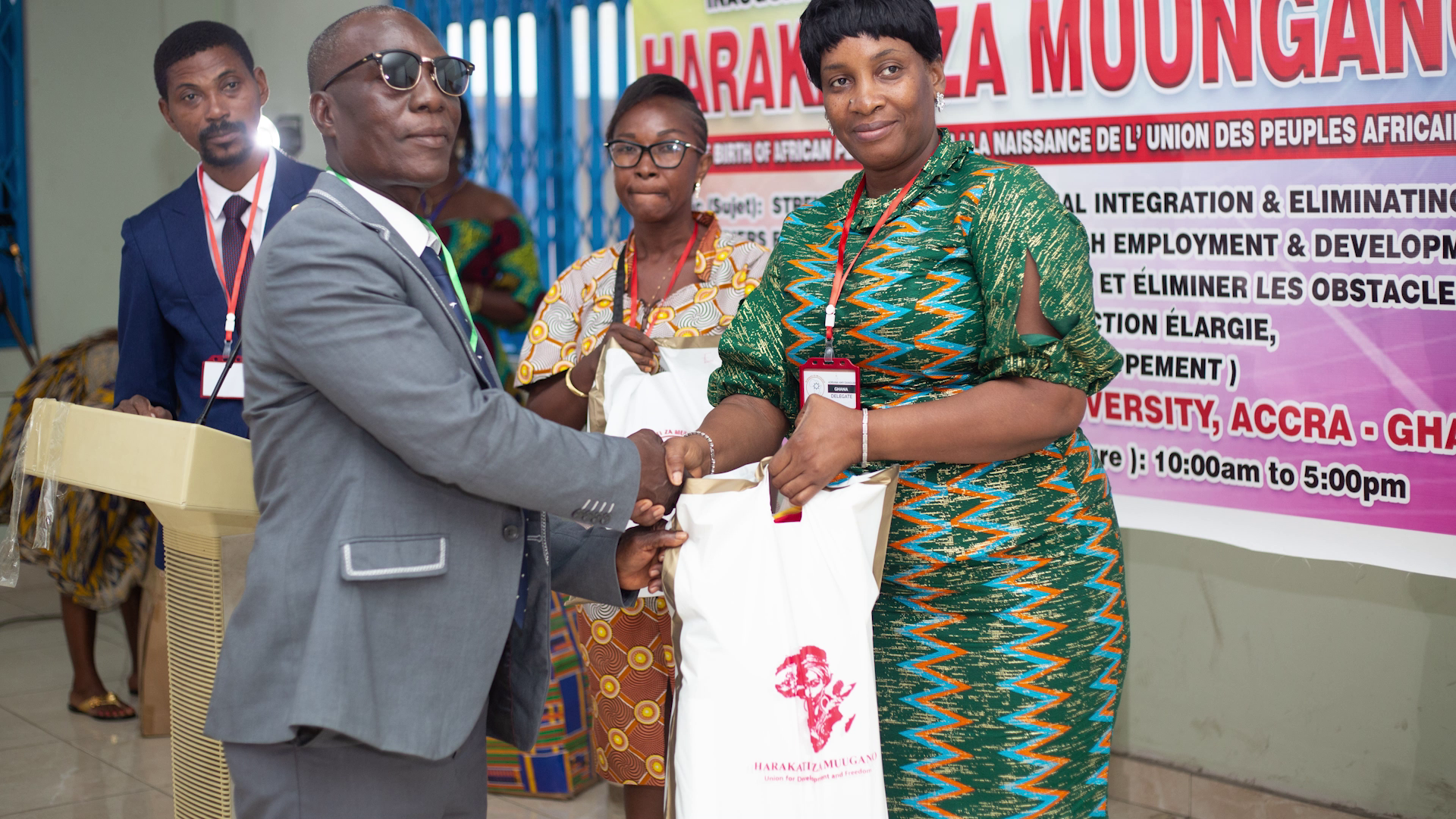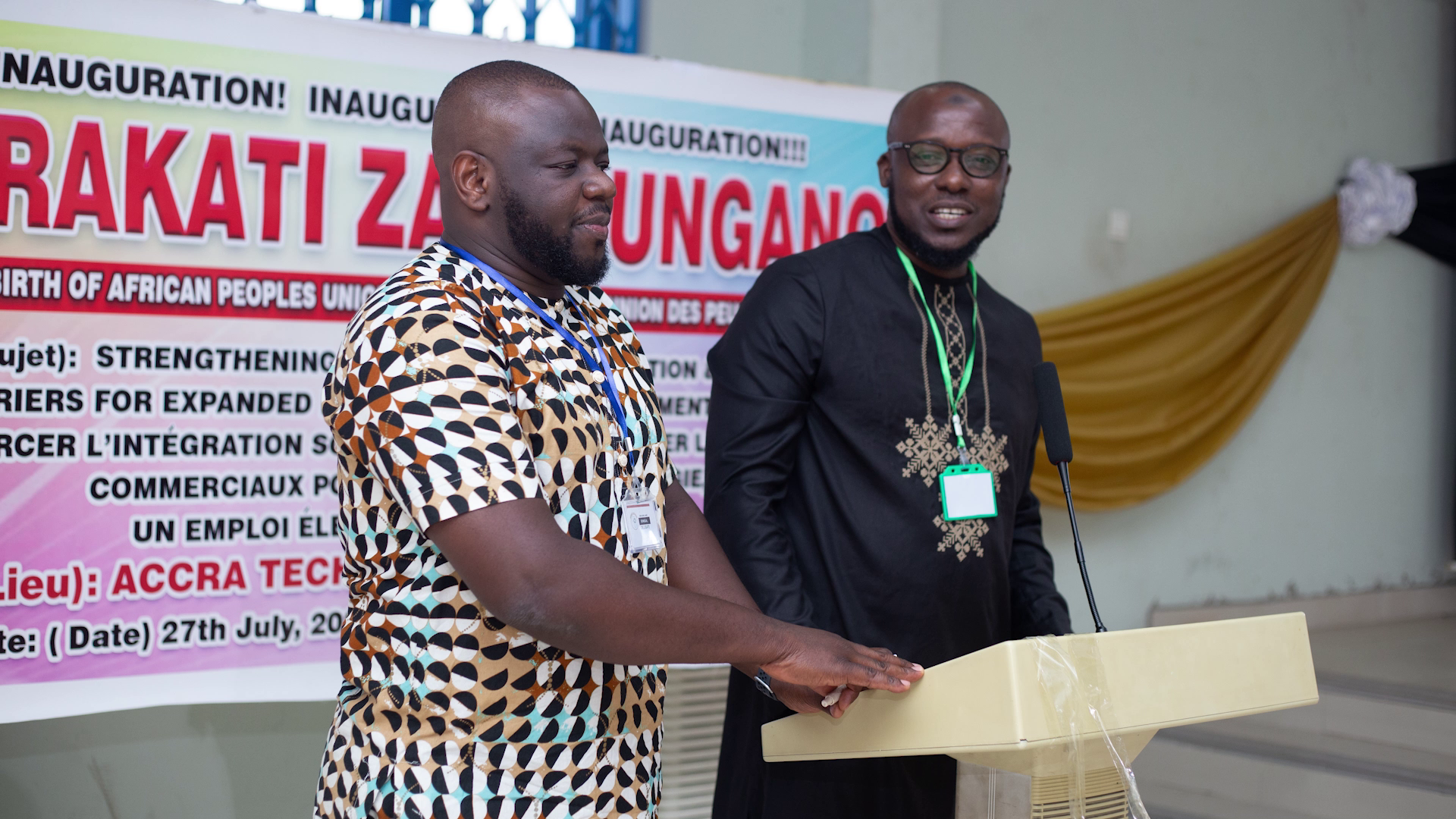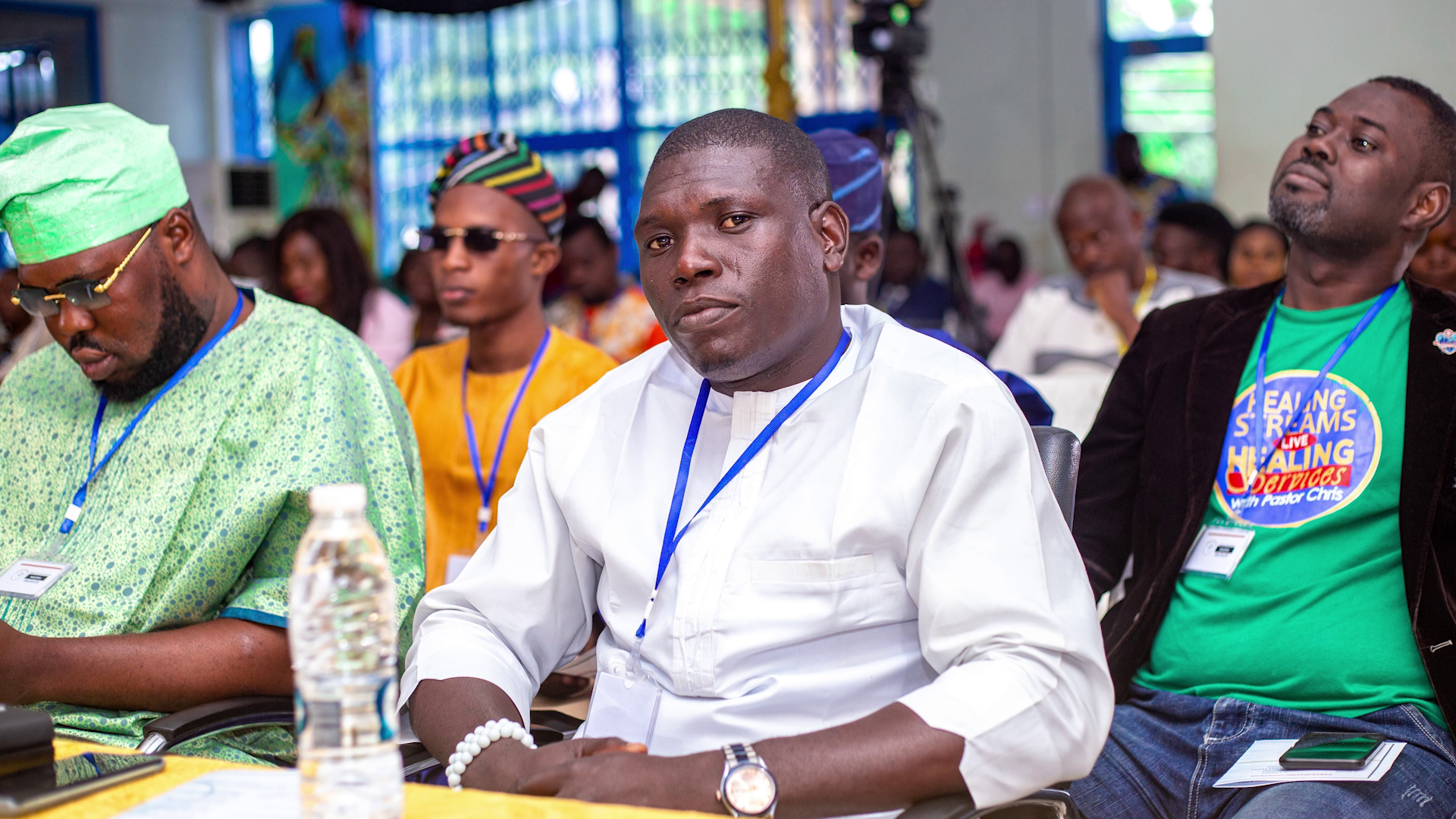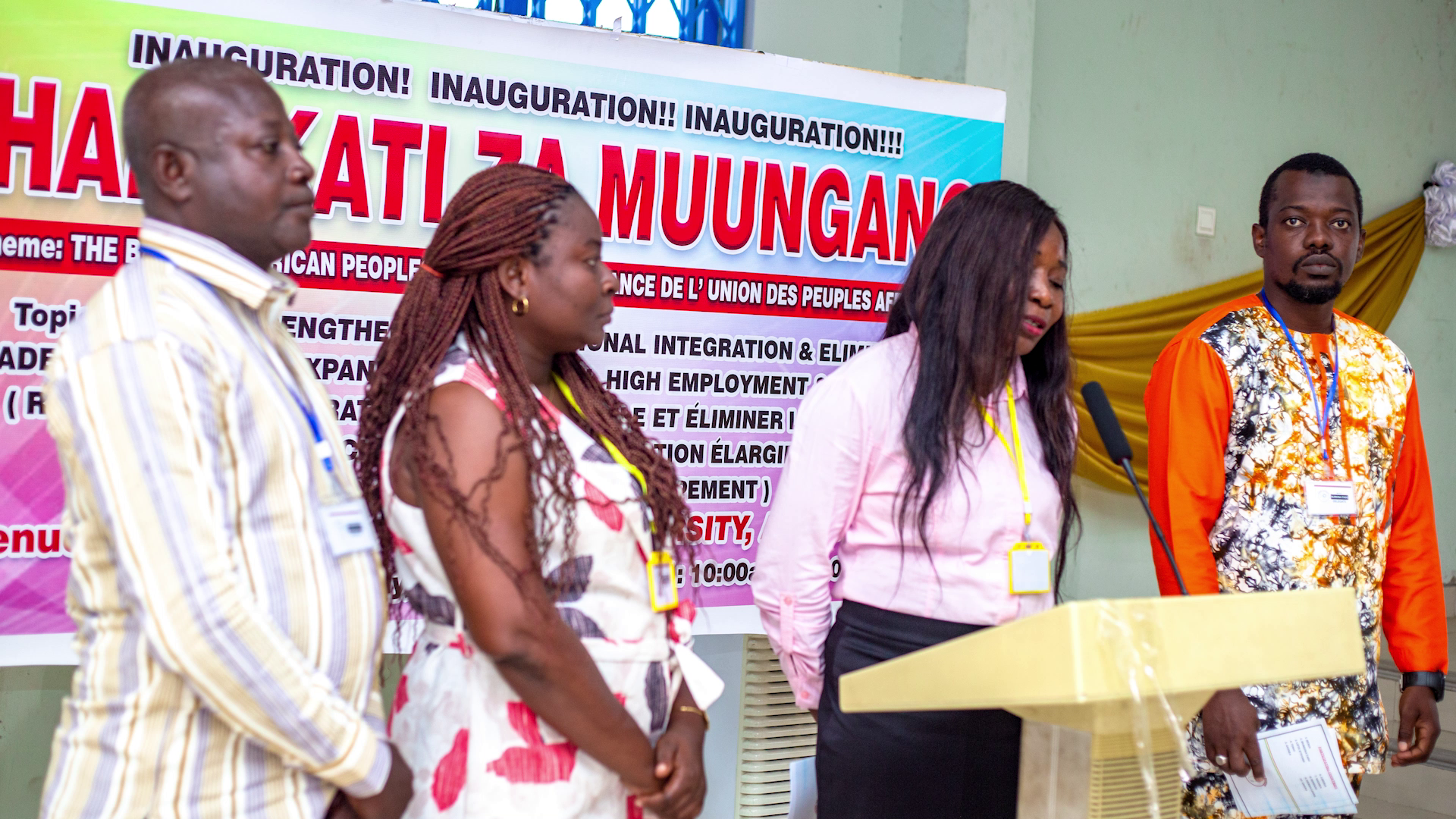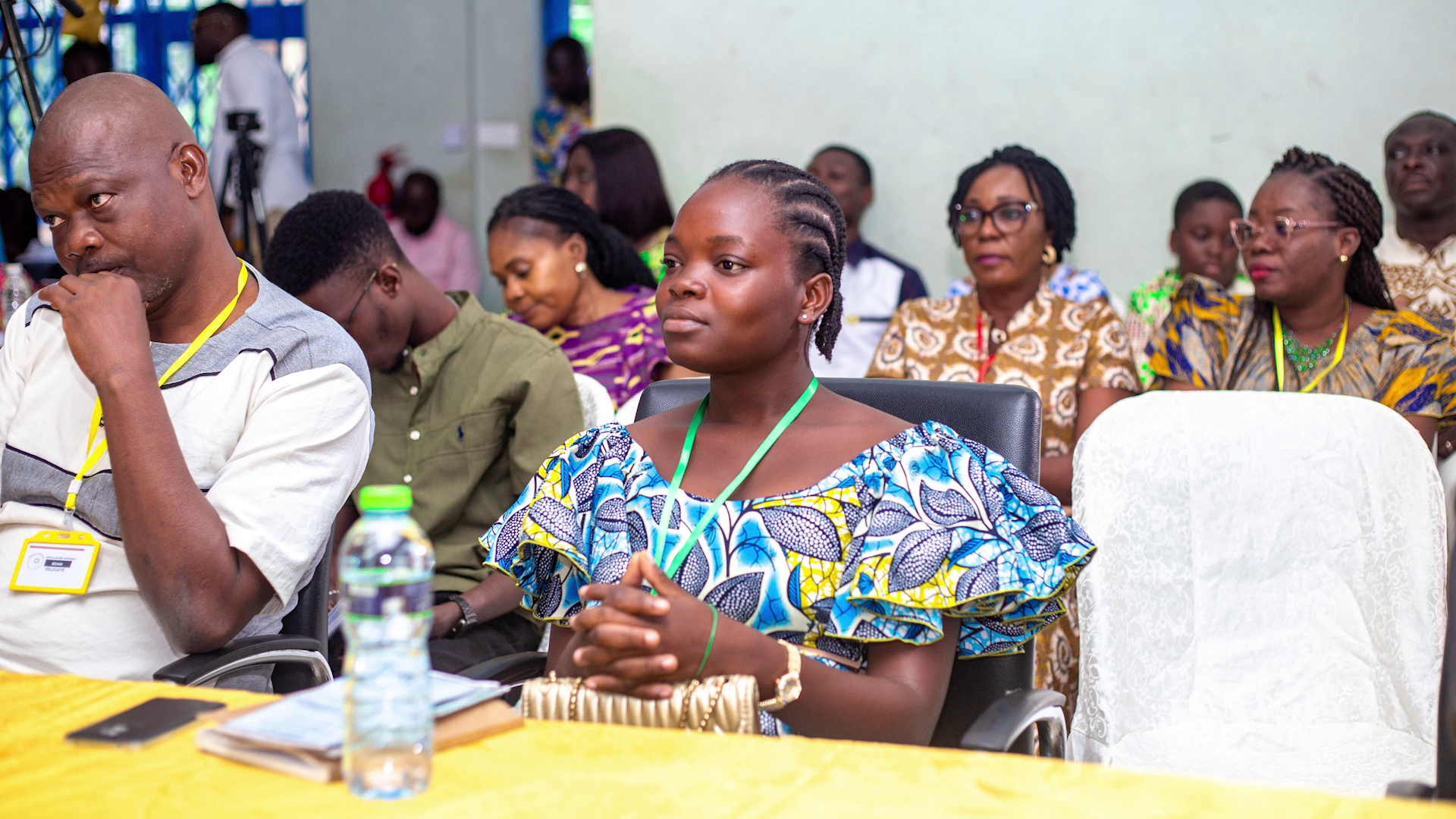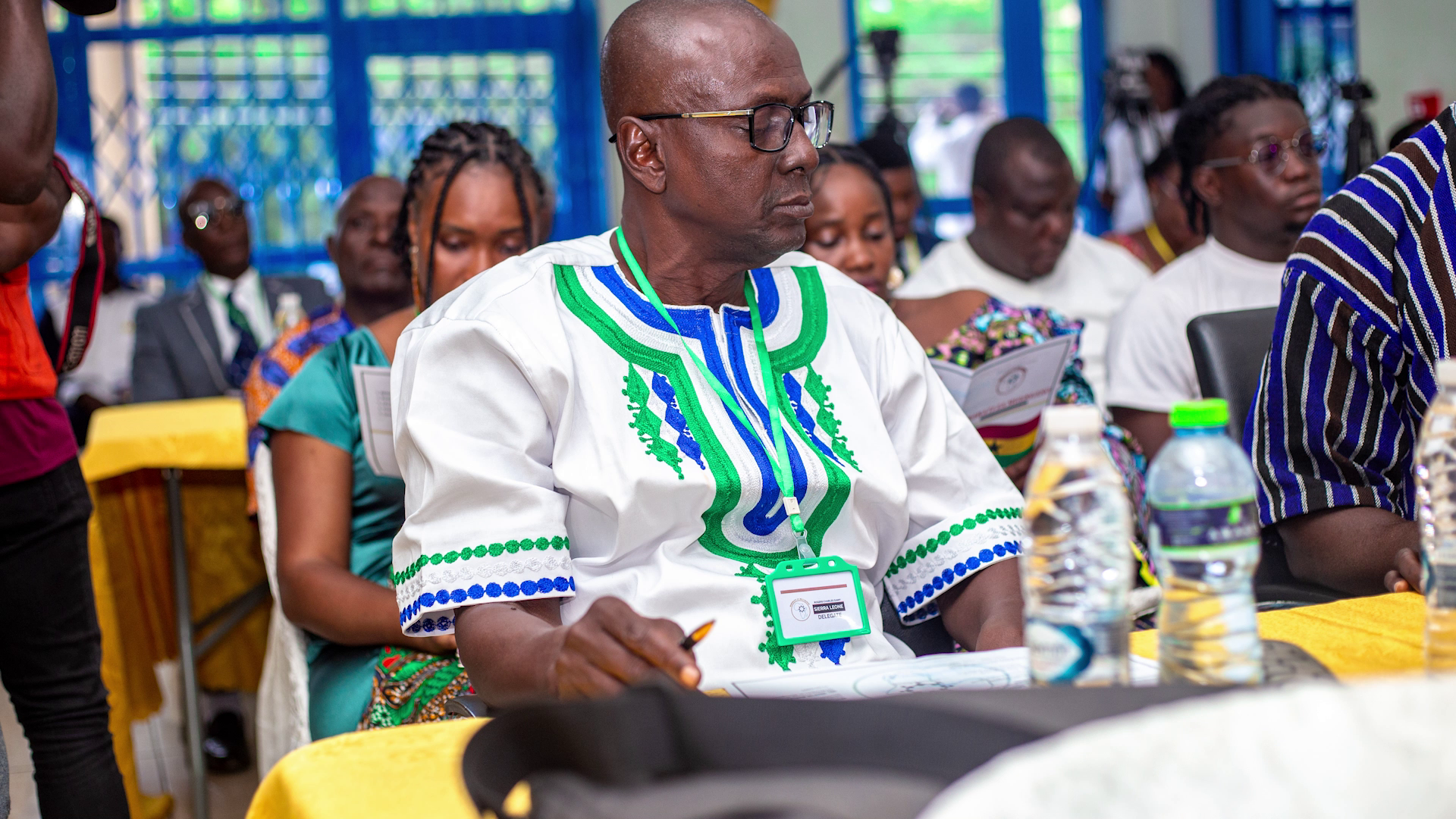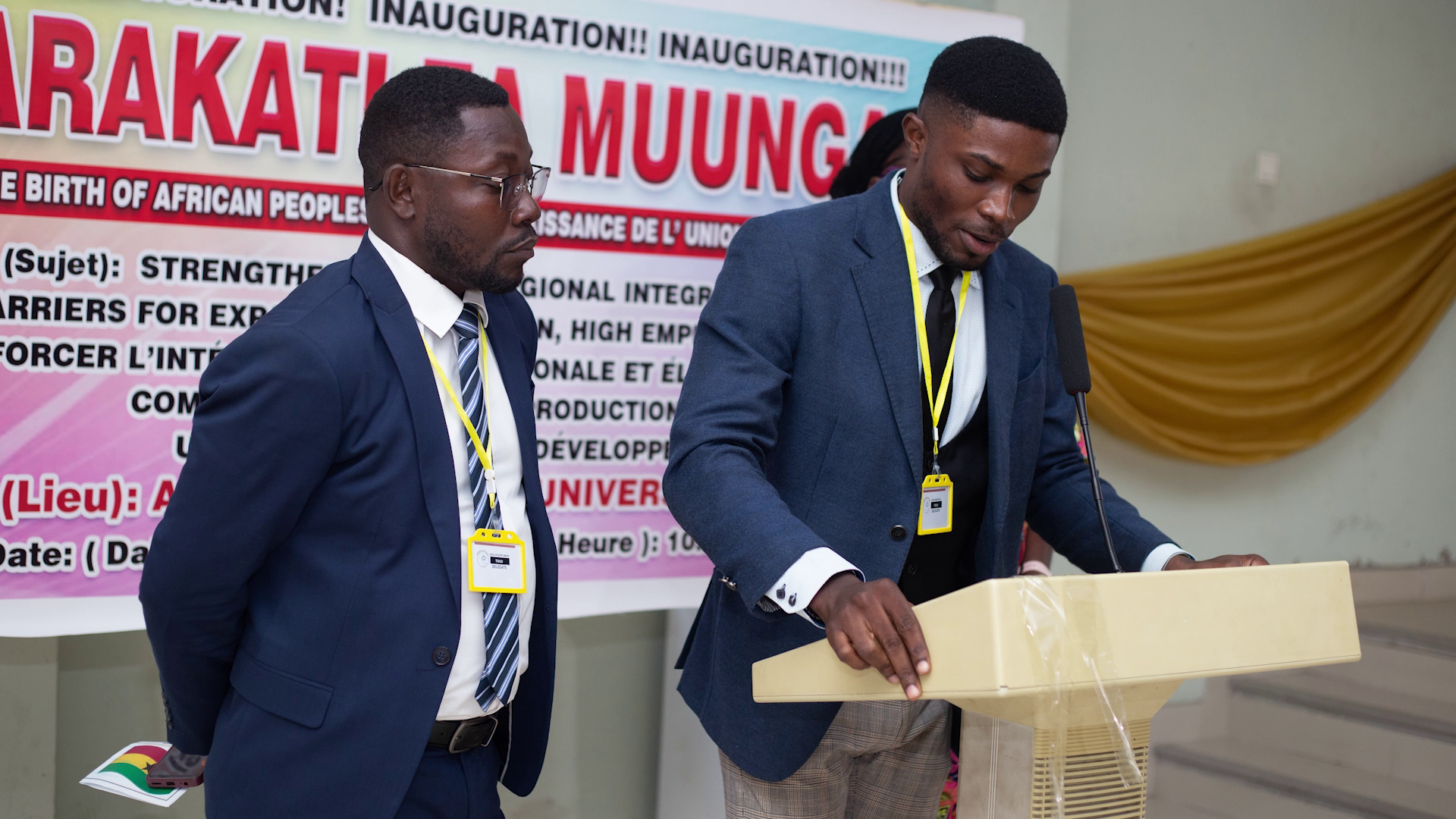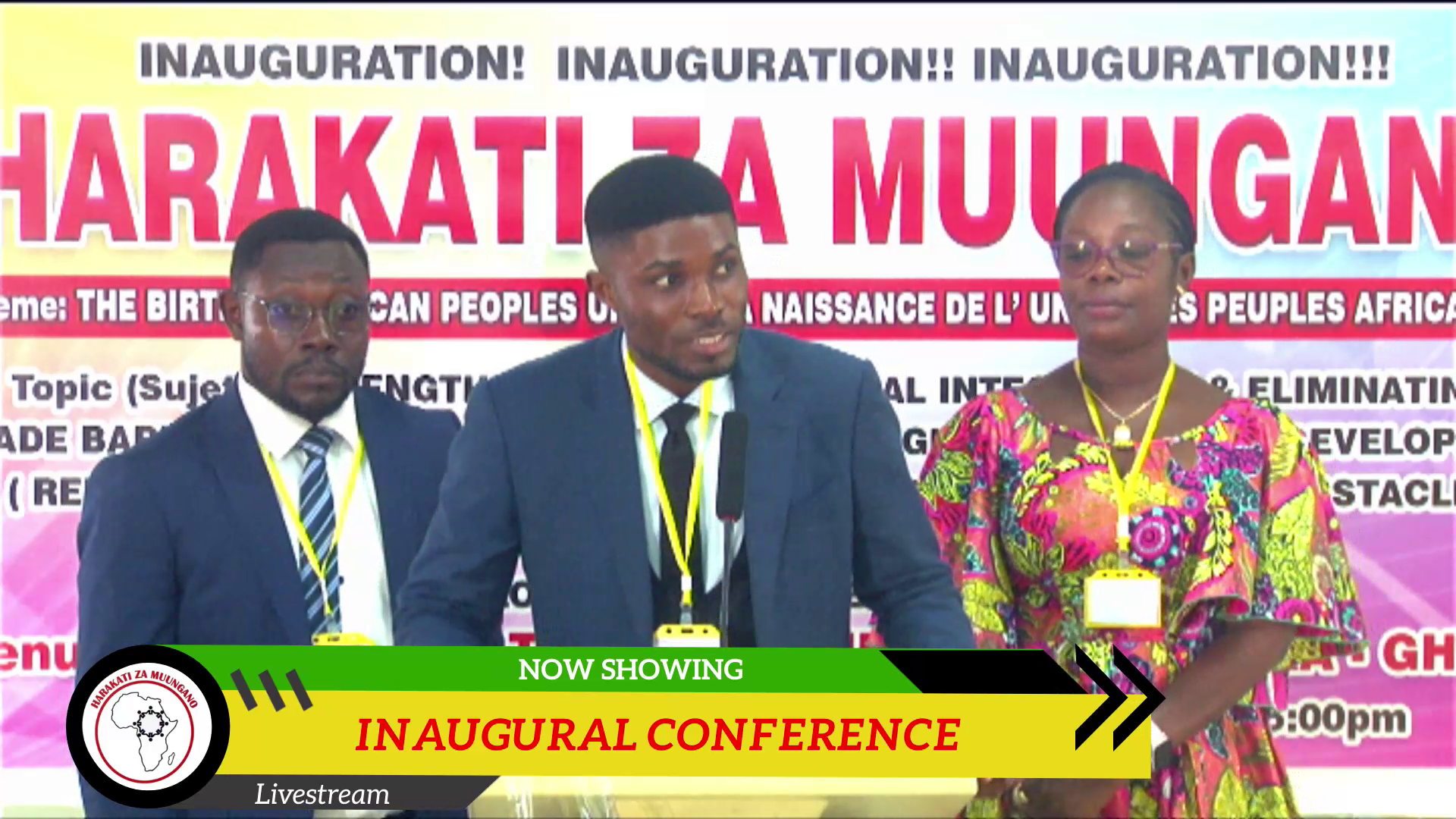HEADLINES:
SPEECH BY DR MAMOUDOU SOUNOSSY DIALLO AT THE 2nd INTERNATIONAL HZM CONFERENCE IN ACCRASPEECH BY PROF HAROUNA LY AT THE 2nd INTERNATIONAL HZM CONFERENCE IN ACCRASPEECH BY MR CHARLES ROGERS AT THE 2nd INTERNATIONAL HZM CONFERENCE IN ACCRASPEECH BY DR CHIEF SALOUM DIETTA AT THE 2nd INTERNATIONAL HzM CONFERENCE IN ACCRASPEECH BY CHIEF DR. DELE MOMODU AT THE 2nd INTERNATIONAL HzM CONFERENCE IN ACCRAKeynote speech by Mr. Kwame DanquahHarakati za Muungano – May 2025 ConferenceConference of (de) Harakati Za Muungano𝘿𝙊𝙉𝘼𝙏𝙄𝙊𝙉 𝘼𝙏 𝙊𝙎𝙐 𝘾𝙃𝙄𝙇𝘿𝙍𝙀𝙉’𝙎 𝙃𝙊𝙈𝙀CONFERENCE OF (DE) HARAKATI ZA MUUNGANOVISIT OF SOME MEMBERS OF HARAKATI ZA MUUNGANO GHANA SECRETARIAT TO NIGERIA SECRETARIAT.Representatives of our member country Cote D’ivoireRepresentatives of our member country Burkina FasoRepresentatives of our member country BeninCultural performance by Gaskia Dance Company at the Inaugural ConferenceHarakati Za Muungano members returning from Cape Coast Castle tour(Ghana)Harakati Za Muungano Sierra Leone representativesINTERVIEW OF DELEGATES, BY MRS. SYLVIA BABANGULASUBMISSION BY REPRESENTATIVES OF MEMBER COUNTRIESPRESENTATION OF SOUVENIRS AND PARAPHERNALIAKEYNOTE ADDRESS BY THE CHAIRMANSPEECH FROM THE ICU REPRESENTATIVE, MADAM MAKU VONDEE, THE CHIEF INDUSTRIAL RELATIONS OFFICERSUBMISSION OF THE OBJECTIVES OF HARAKATI ZA MUUNGANOHARAKATI ZA MUUNGANO UP-COMING 2025 CONFERENCEINTERVIEW OF DELEGATES, DR. APPOLINAIRE HOUESSOU – BENIN DELEGATEINTERVIEW OF DELEGATES, VICTOR SOLOBOR CHEA, LIBERIA REPRESENTATIVEINTERVIEW OF DELEGATES, NASH ABUI – TOGO TEAM LEADERHARAKATI ZA MUUNGANO UP-COMING 2025 CONFERENCEInaugural Conference of Harakati Za Muungano out in News papers “Daily Graphic”Inaugural Conference of Harakati Za Muungano out in News papers “Daily Guide”HARAKATI ZA MUUNGANO MEMBERS TOUR AT CAPE COAST CASTLEInaugural Conference Tour at Cape Coast Castle, Harakati Za Muungano MembersPress interview with the president of Harakati Za Muungano, Mr. Kwame Danquah (Twi version)INTRODUCTION OF DELEGATES AND REPRESENTATIVES OF MEMBER COUNTRIESCAPE COAST CASTLE TOUR WITH SYLVIA MWINMAALA BABANGULAPress interview with the president of harakati za muungano (English Version)UP-COMING EVENT, INAUGURAL CONFERENCE, SATURDAY 27 JULY 2024 @ ACCRA TECHNICAL UNIVERSITYHarakati Za Muungano Cote D”voire representativesHarakati Za Muungano Liberia representativesUP-COMING EVENTUP-COMING EVENT: INAUGURAL CONFERENCEINAUGURAL CONFERENCEINAUGURAL CONFERENCEHISTORY OF THE MISSIONWelcome to Harakati Za Muungano Cote Divoire representativesWelcome to Harakati Za Muungano Cote Divoire representativesHarakati Za Muungano Guinea representativesHARAKATI ZA MUUNGANOAFRICA MUST UNITEAFRICAN MOVEMENTAFRICA HARAKATI ZA MUUNGANOAFRICA UNION MOVEMENTMR KWAME DANQUAH, THE PRESIDENT OF HARAKATI ZA MUUNGANOUP-COMING CONFERENCEWELCOME TO HARAKATI ZA MUUNGANOHARAKATI AFRICA2025 UP-COMING CONFERENCEHARAKATI ZA MUUNGANO CONFERENCEWE BELIEVE IN AFRICAWELCOME TO HARAKATI ZA MUUNGANO CONFERENCEWelcome to Harakati Za Muungano Guinea representativesWelcome to Harakati Za Muungano Liberia representativesWelcome to Harakati Za Muungano Senegal representativesWelcome to Harakati Za Muungano Nigeria representativesWelcome to Harakati Za Muungano Burkina Faso representativesWelcome to Harakati Za Muungano Benin representativesWelcome to Harakati Za Muungano Sierra Leone Faso representativesHarakati Za Muungano Togo representativesHarakati Za Muungano Togo representatives
Fri. Jun 6th, 2025
-
Or check our Popular Categories...
-
VISION $ MISSION

We have the vision to unite and develop the present and succeeding generations of Sub-Sahara Africans
We have the mission to work in the economic space, political space, socio-cultural space and relevant sectors to collapse physical colonial borders and eliminate trade barriers, to integrate institutions, to promote the development of African countries and to unite the people and countries of Sub-Sahara Africa
Contact Info
1st Floor Room 7, Swanzy Arcade, Kwame Nkrumah Av,
Tel: 00 233 534 50 34 50 or 00 233 204 67 29 00: Whatsapp: 00 233 534 50 34 50
HEADLINES:
SPEECH BY DR MAMOUDOU SOUNOSSY DIALLO AT THE 2nd INTERNATIONAL HZM CONFERENCE IN ACCRASPEECH BY PROF HAROUNA LY AT THE 2nd INTERNATIONAL HZM CONFERENCE IN ACCRASPEECH BY MR CHARLES ROGERS AT THE 2nd INTERNATIONAL HZM CONFERENCE IN ACCRASPEECH BY DR CHIEF SALOUM DIETTA AT THE 2nd INTERNATIONAL HzM CONFERENCE IN ACCRASPEECH BY CHIEF DR. DELE MOMODU AT THE 2nd INTERNATIONAL HzM CONFERENCE IN ACCRAKeynote speech by Mr. Kwame DanquahHarakati za Muungano – May 2025 ConferenceConference of (de) Harakati Za Muungano𝘿𝙊𝙉𝘼𝙏𝙄𝙊𝙉 𝘼𝙏 𝙊𝙎𝙐 𝘾𝙃𝙄𝙇𝘿𝙍𝙀𝙉’𝙎 𝙃𝙊𝙈𝙀CONFERENCE OF (DE) HARAKATI ZA MUUNGANOVISIT OF SOME MEMBERS OF HARAKATI ZA MUUNGANO GHANA SECRETARIAT TO NIGERIA SECRETARIAT.Representatives of our member country Cote D’ivoireRepresentatives of our member country Burkina FasoRepresentatives of our member country BeninCultural performance by Gaskia Dance Company at the Inaugural ConferenceHarakati Za Muungano members returning from Cape Coast Castle tour(Ghana)Harakati Za Muungano Sierra Leone representativesINTERVIEW OF DELEGATES, BY MRS. SYLVIA BABANGULASUBMISSION BY REPRESENTATIVES OF MEMBER COUNTRIESPRESENTATION OF SOUVENIRS AND PARAPHERNALIAKEYNOTE ADDRESS BY THE CHAIRMANSPEECH FROM THE ICU REPRESENTATIVE, MADAM MAKU VONDEE, THE CHIEF INDUSTRIAL RELATIONS OFFICERSUBMISSION OF THE OBJECTIVES OF HARAKATI ZA MUUNGANOHARAKATI ZA MUUNGANO UP-COMING 2025 CONFERENCEINTERVIEW OF DELEGATES, DR. APPOLINAIRE HOUESSOU – BENIN DELEGATEINTERVIEW OF DELEGATES, VICTOR SOLOBOR CHEA, LIBERIA REPRESENTATIVEINTERVIEW OF DELEGATES, NASH ABUI – TOGO TEAM LEADERHARAKATI ZA MUUNGANO UP-COMING 2025 CONFERENCEInaugural Conference of Harakati Za Muungano out in News papers “Daily Graphic”Inaugural Conference of Harakati Za Muungano out in News papers “Daily Guide”HARAKATI ZA MUUNGANO MEMBERS TOUR AT CAPE COAST CASTLEInaugural Conference Tour at Cape Coast Castle, Harakati Za Muungano MembersPress interview with the president of Harakati Za Muungano, Mr. Kwame Danquah (Twi version)INTRODUCTION OF DELEGATES AND REPRESENTATIVES OF MEMBER COUNTRIESCAPE COAST CASTLE TOUR WITH SYLVIA MWINMAALA BABANGULAPress interview with the president of harakati za muungano (English Version)UP-COMING EVENT, INAUGURAL CONFERENCE, SATURDAY 27 JULY 2024 @ ACCRA TECHNICAL UNIVERSITYHarakati Za Muungano Cote D”voire representativesHarakati Za Muungano Liberia representativesUP-COMING EVENTUP-COMING EVENT: INAUGURAL CONFERENCEINAUGURAL CONFERENCEINAUGURAL CONFERENCEHISTORY OF THE MISSIONWelcome to Harakati Za Muungano Cote Divoire representativesWelcome to Harakati Za Muungano Cote Divoire representativesHarakati Za Muungano Guinea representativesHARAKATI ZA MUUNGANOAFRICA MUST UNITEAFRICAN MOVEMENTAFRICA HARAKATI ZA MUUNGANOAFRICA UNION MOVEMENTMR KWAME DANQUAH, THE PRESIDENT OF HARAKATI ZA MUUNGANOUP-COMING CONFERENCEWELCOME TO HARAKATI ZA MUUNGANOHARAKATI AFRICA2025 UP-COMING CONFERENCEHARAKATI ZA MUUNGANO CONFERENCEWE BELIEVE IN AFRICAWELCOME TO HARAKATI ZA MUUNGANO CONFERENCEWelcome to Harakati Za Muungano Guinea representativesWelcome to Harakati Za Muungano Liberia representativesWelcome to Harakati Za Muungano Senegal representativesWelcome to Harakati Za Muungano Nigeria representativesWelcome to Harakati Za Muungano Burkina Faso representativesWelcome to Harakati Za Muungano Benin representativesWelcome to Harakati Za Muungano Sierra Leone Faso representativesHarakati Za Muungano Togo representativesHarakati Za Muungano Togo representatives
Fri. Jun 6th, 2025
-
Or check our Popular Categories...
- DONATION

